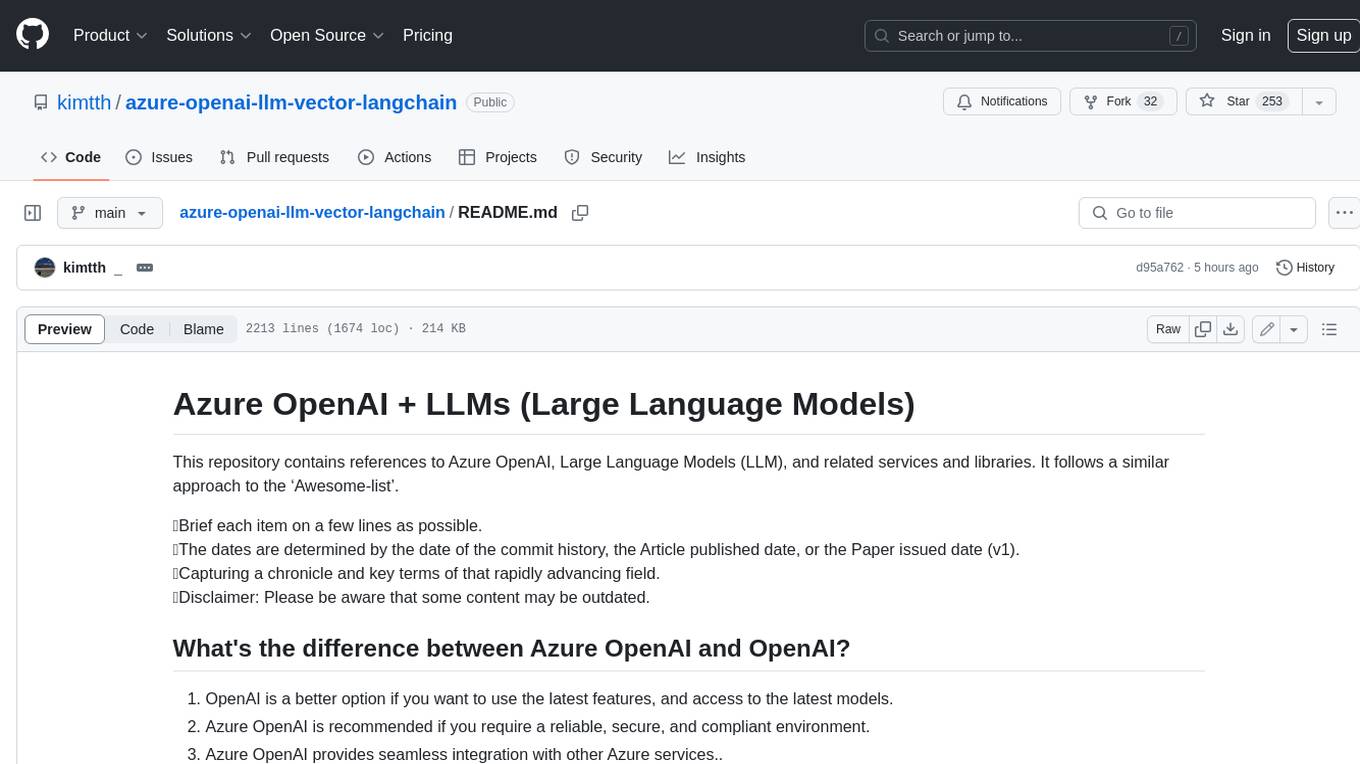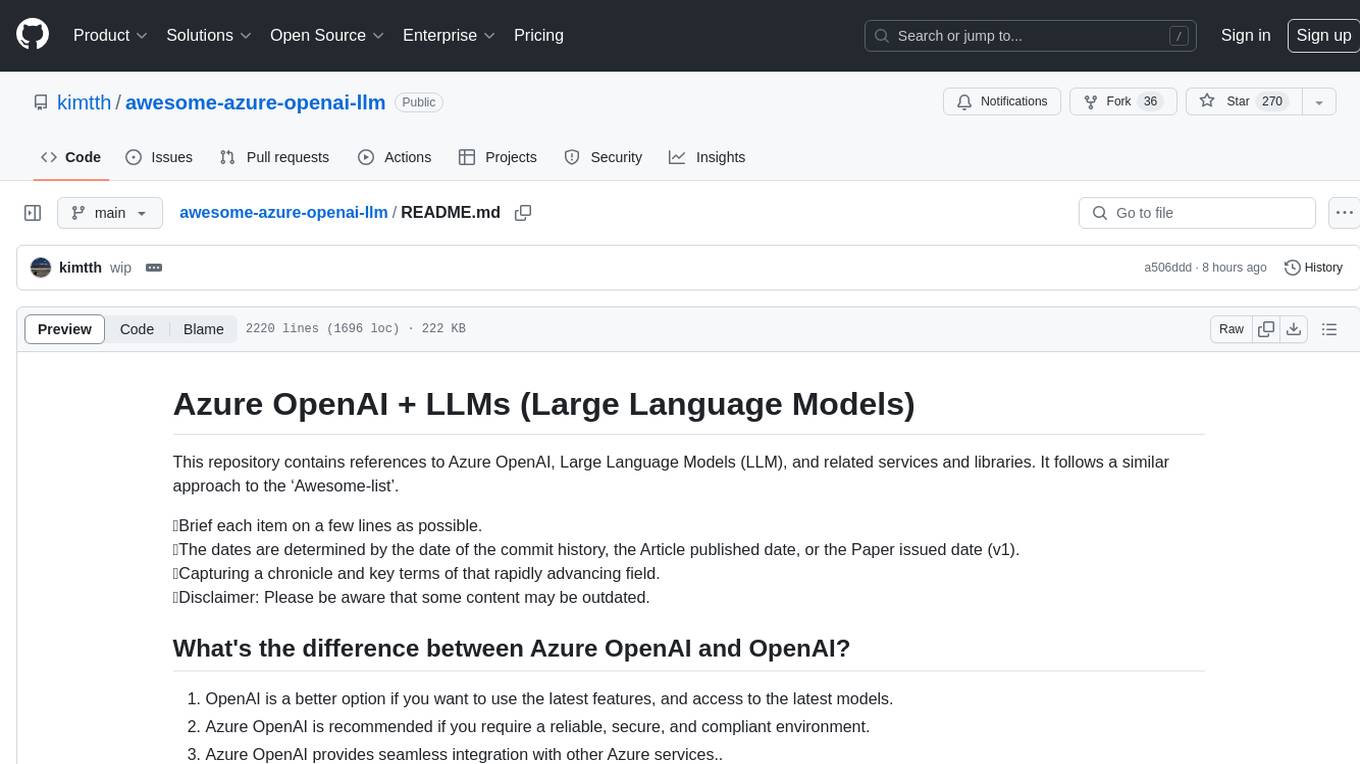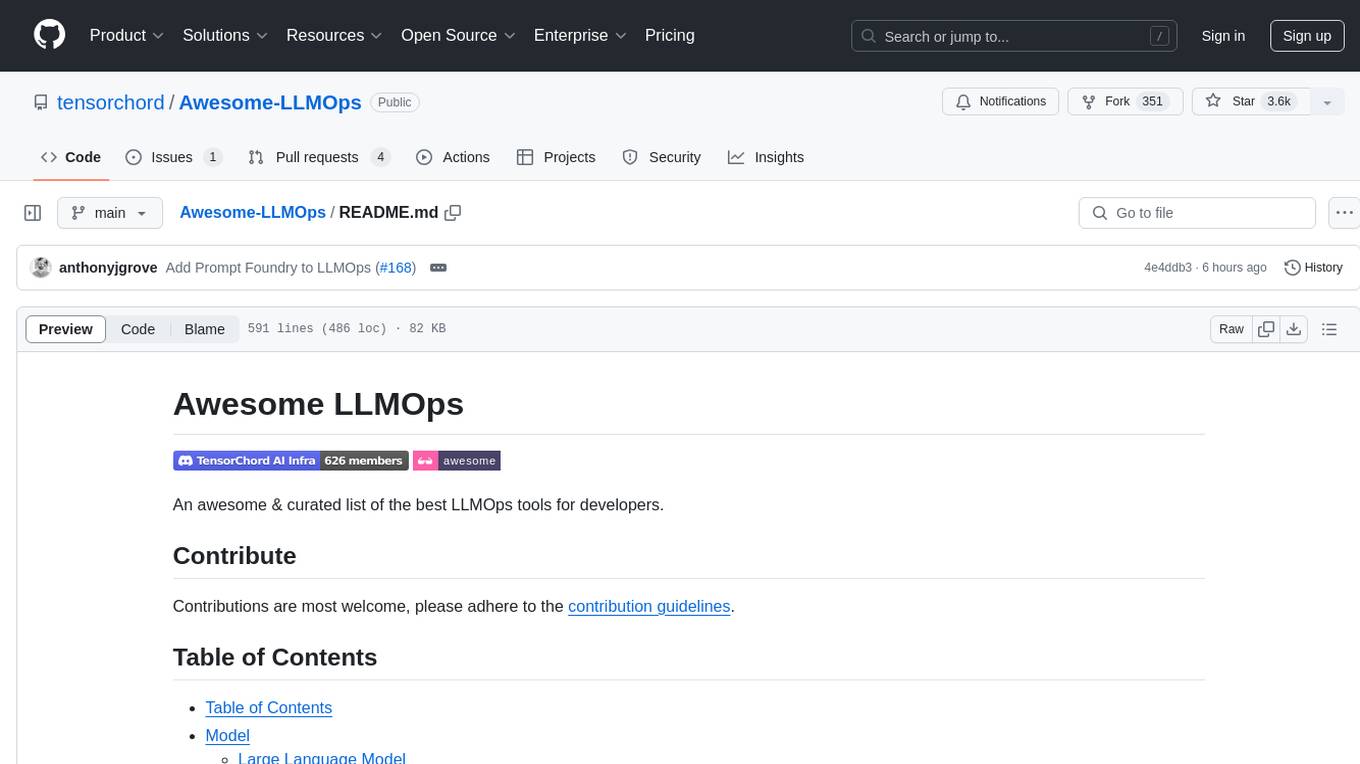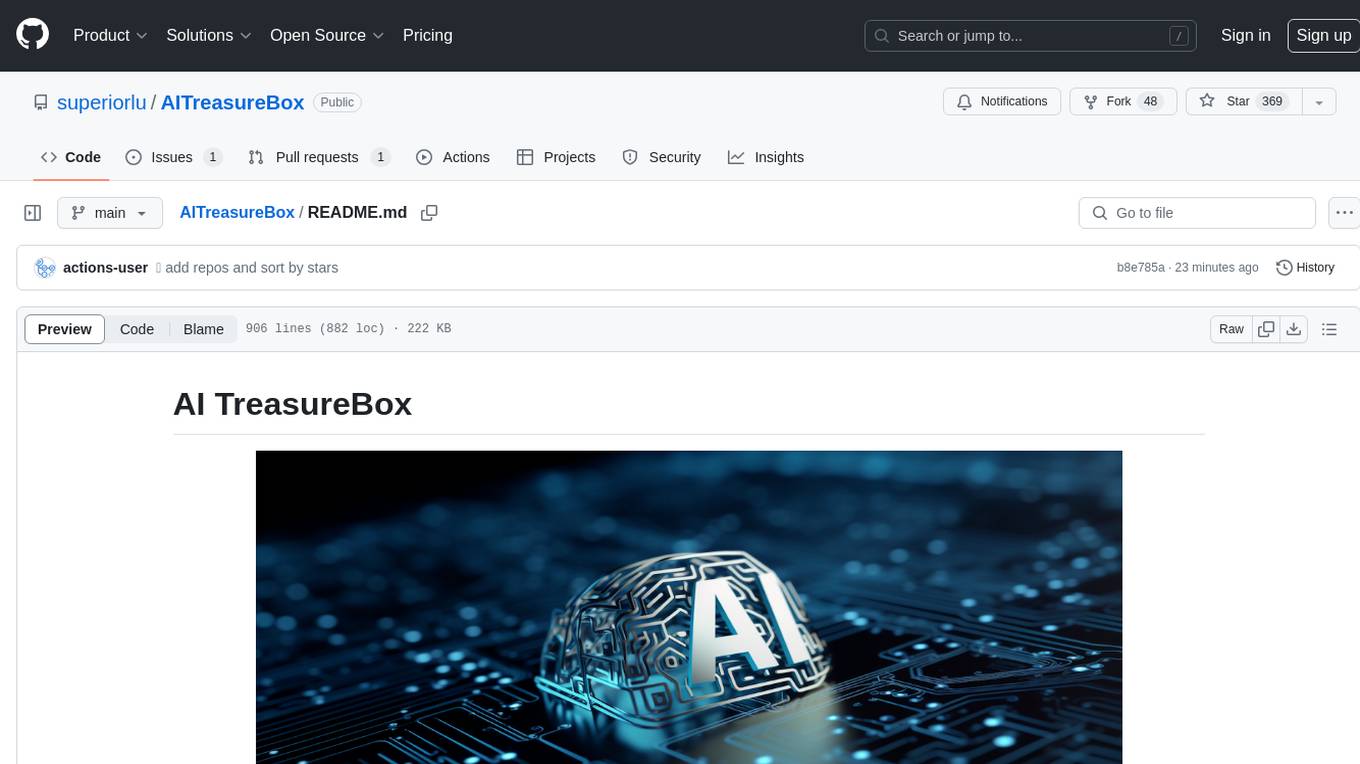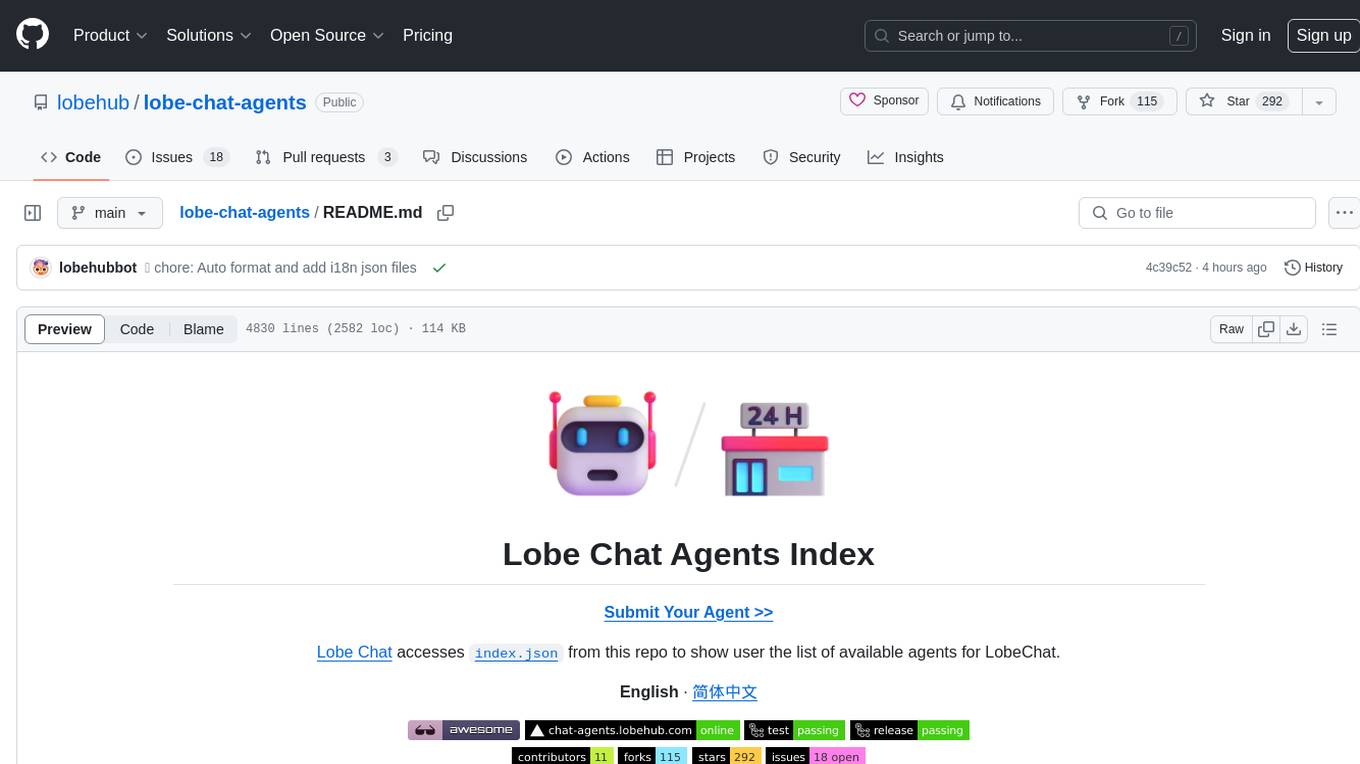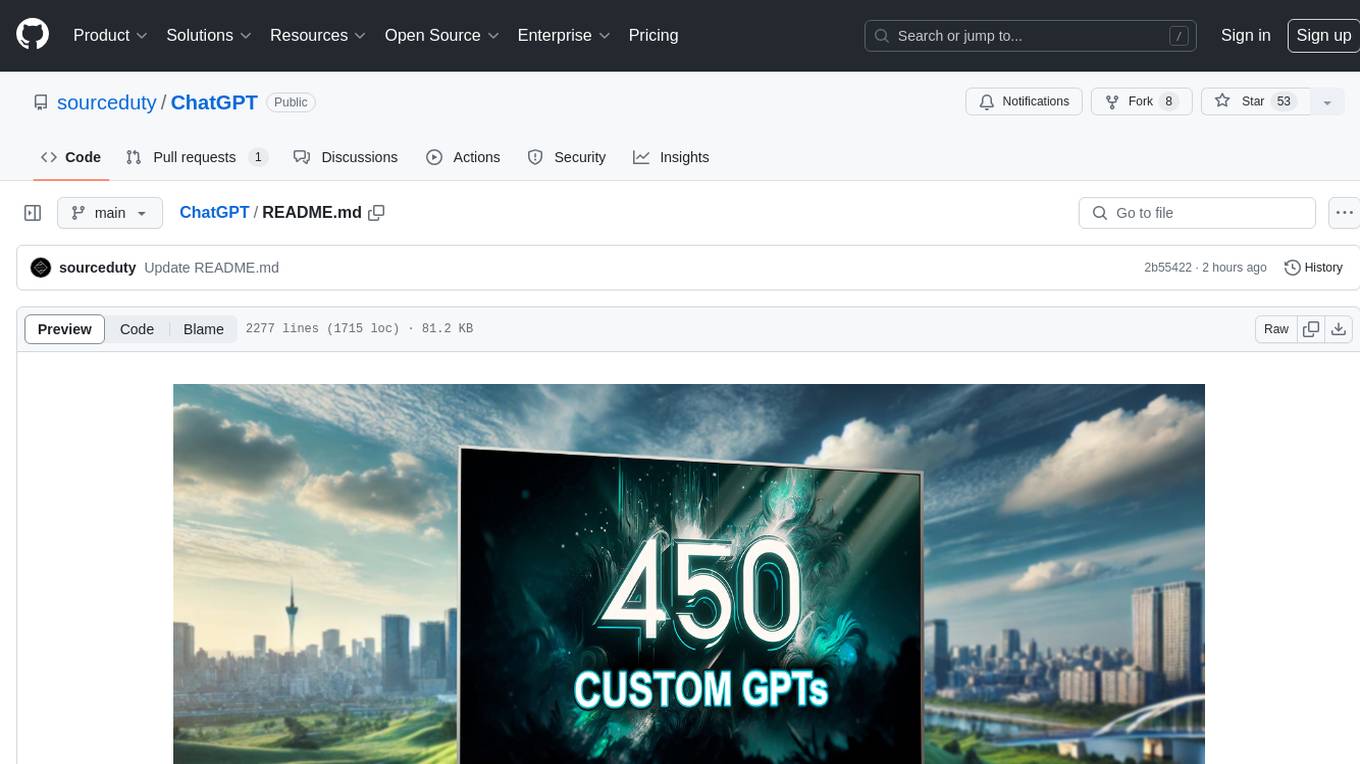Best AI tools for< Standardize Backgrounds >
20 - AI tool Sites
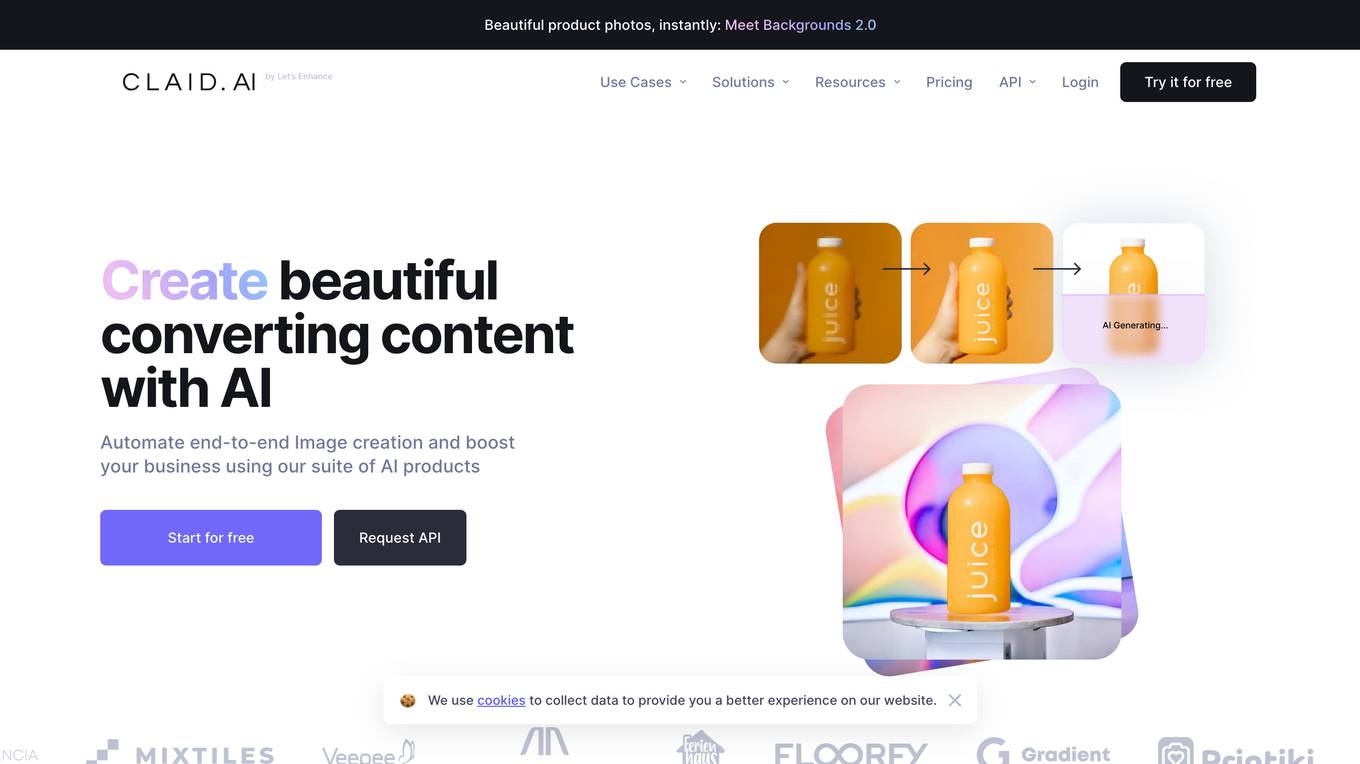
Claid.ai
Claid.ai is an AI product photography suite that offers powerful tools to enhance and edit product images effortlessly. With Claid.ai Brush, users can transform ordinary product photos into flawless, high-quality marketing images in seconds. The application is trusted by over 10,000 businesses to streamline their content creation process and achieve consistency in visual branding. Claid.ai provides features such as background and frame standardization, color correction, face restoration, and background removal, all aimed at improving image quality and boosting conversions. The platform also offers API integration for instant access to editing results and seamless automation of image enhancement tasks.
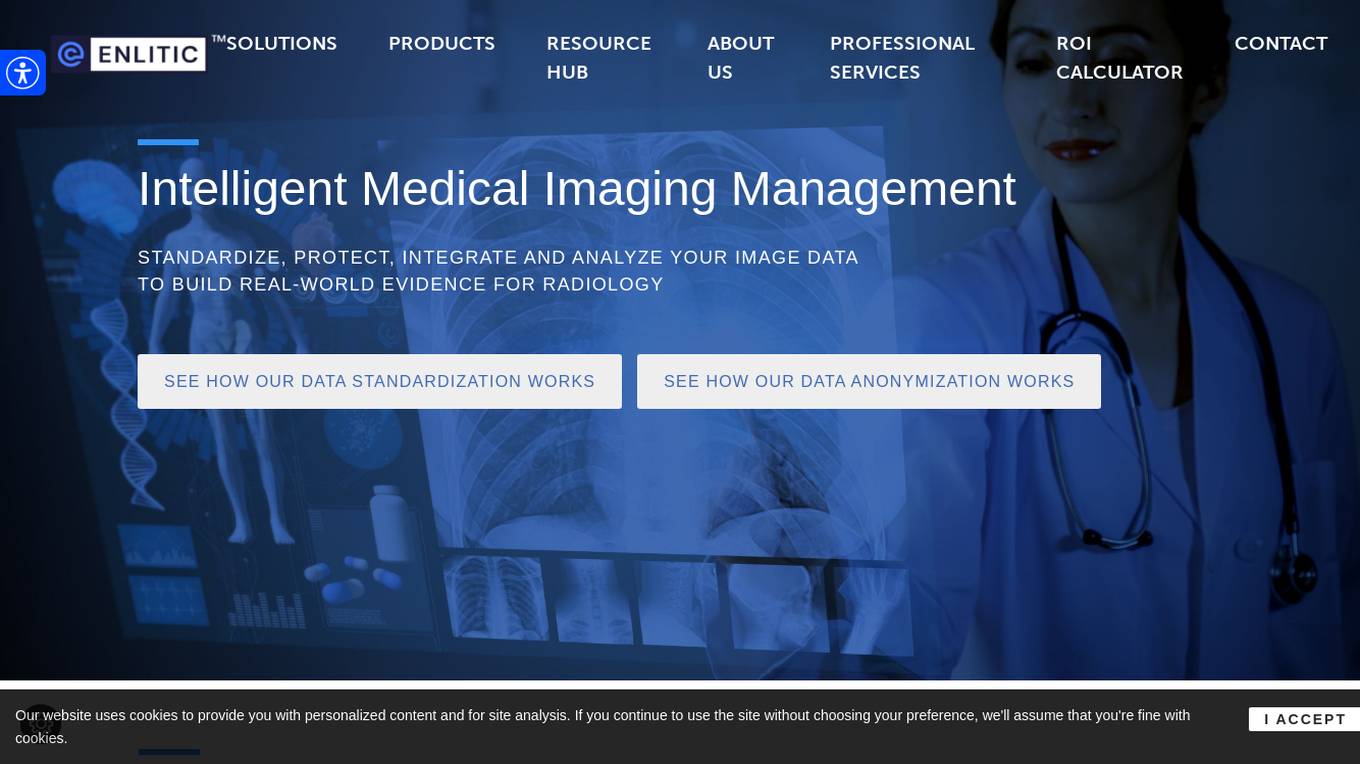
Enlitic
Enlitic provides healthcare data solutions that leverage artificial intelligence to improve data management, clinical workflows, and create a foundation for real-world evidence medical image databases. Their products, ENDEX and ENCOG, utilize computer vision and natural language processing to standardize, protect, and analyze medical imaging data, enabling healthcare providers to optimize workflows, increase efficiencies, and expand capacity.

Claravine
Claravine is an AI tool that creates shared language and standards for marketing data. It eliminates flawed data, conflict, and the blame game by ensuring data accuracy, improving accountability, and building trust. The platform helps enterprise brands and agencies deliver on the promise of modern marketing by consistently creating and applying data standards. With features like defining standards, applying standards, and connecting standards, Claravine maximizes campaign and technology investments to drive better results. Customers report significant improvements in return on ad spend, data compliance, and time spent on manual data processes. The platform enables global collaboration, automates data flows, and adapts quickly to changing business needs. Trusted by global brands, Claravine provides visibility into campaign performance, data consistency across organizations, and a single source of truth for marketing data.
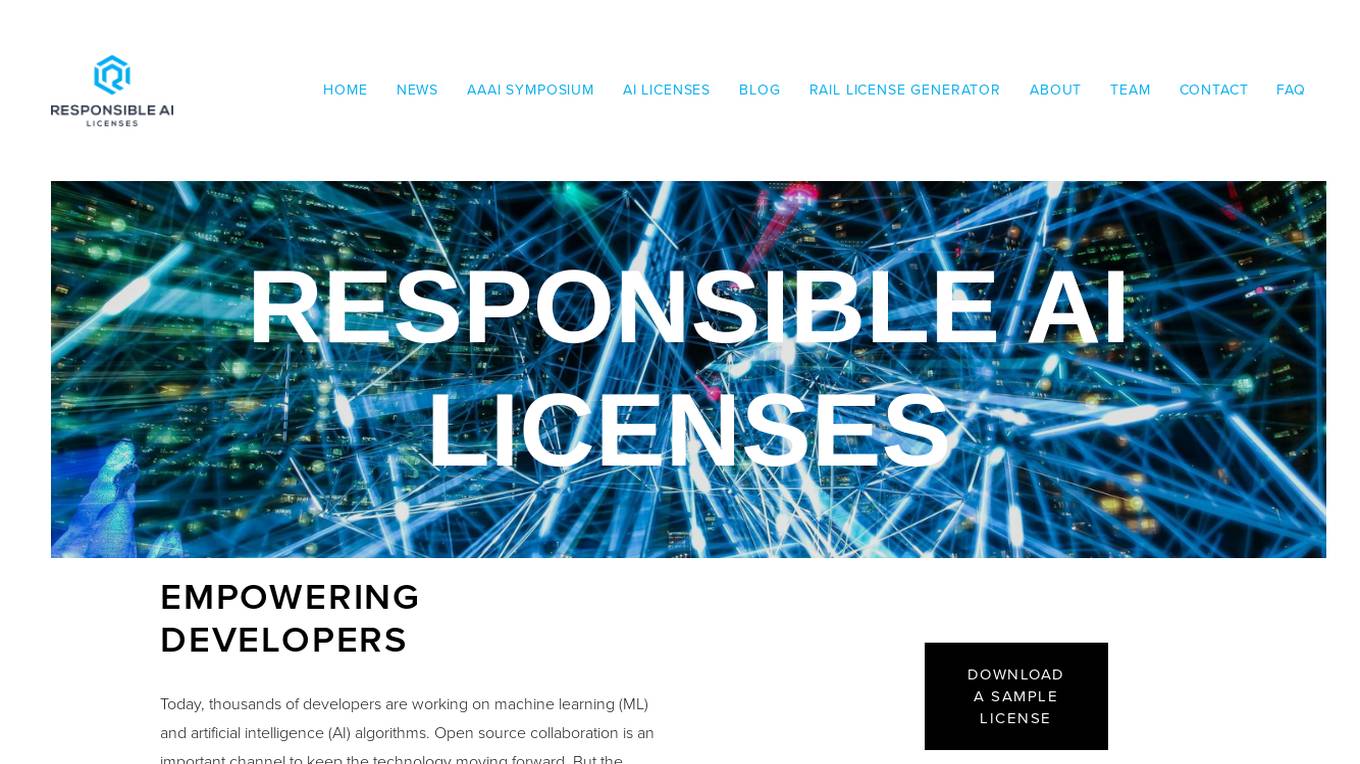
Responsible AI Licenses (RAIL)
Responsible AI Licenses (RAIL) is an initiative that empowers developers to restrict the use of their AI technology to prevent irresponsible and harmful applications. They provide licenses with behavioral-use clauses to control specific use-cases and prevent misuse of AI artifacts. The organization aims to standardize RAIL Licenses, develop collaboration tools, and educate developers on responsible AI practices.
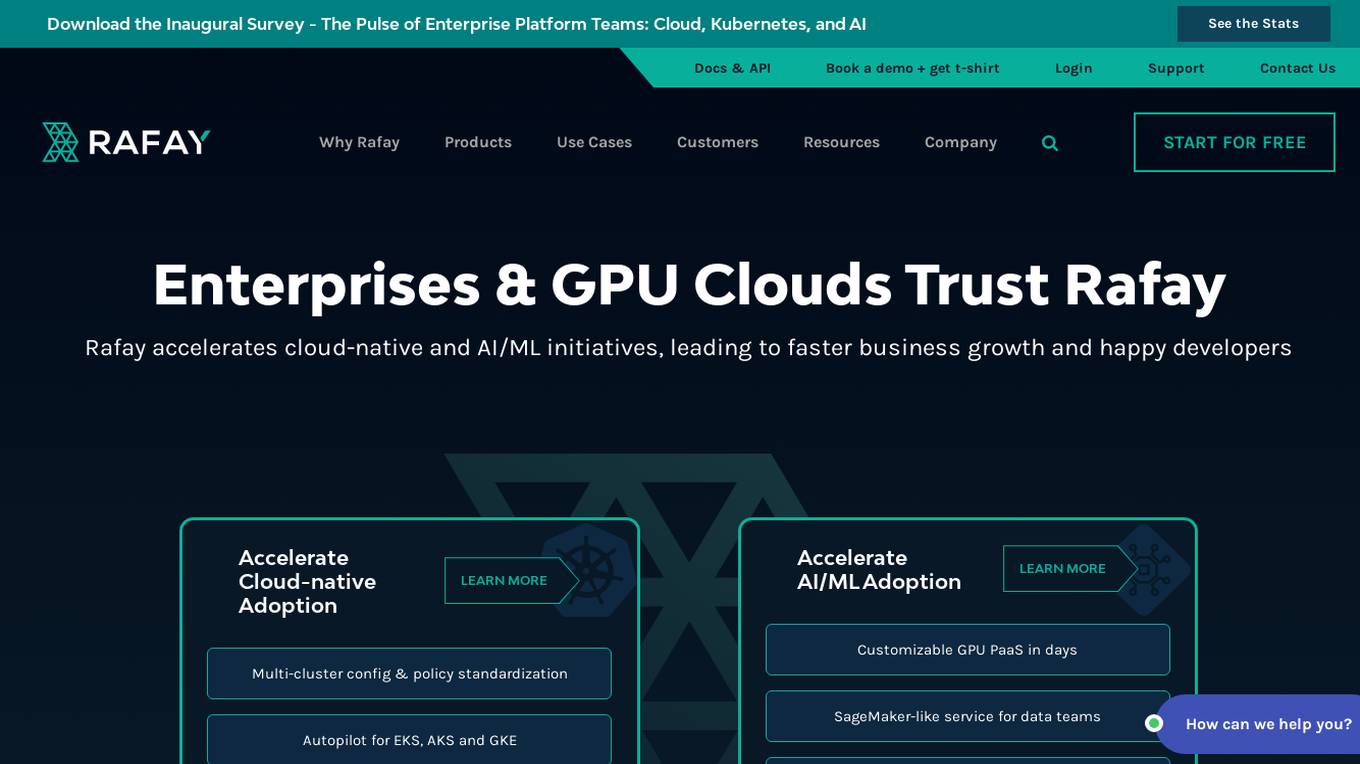
Rafay
Rafay is an AI-powered platform that accelerates cloud-native and AI/ML initiatives for enterprises. It provides automation for Kubernetes clusters, cloud cost optimization, and AI workbenches as a service. Rafay enables platform teams to focus on innovation by automating self-service cloud infrastructure workflows.
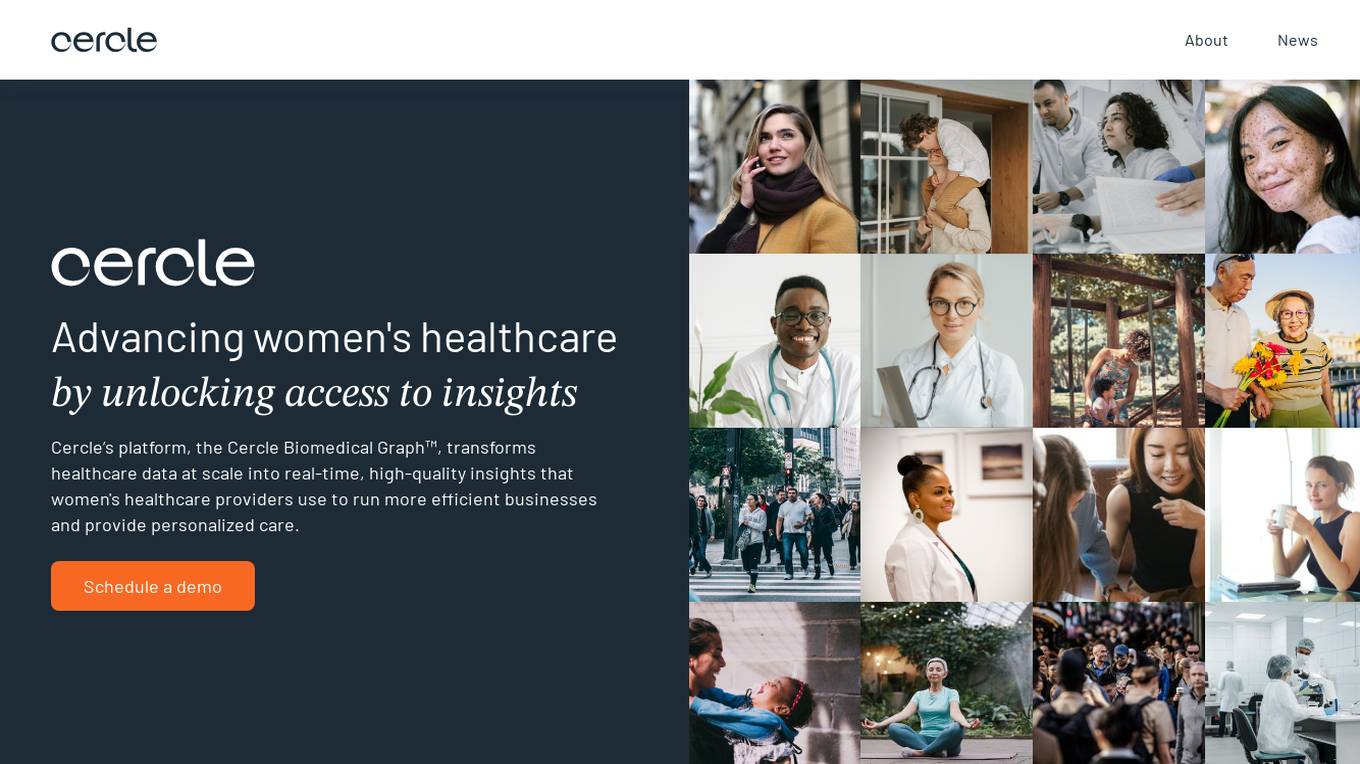
Cercle
Cercle is an AI platform that advances healthcare for women by transforming healthcare data into real-time, high-quality insights. The platform caters to women's healthcare providers, payors, and pharma companies, helping them run more efficient businesses and provide personalized care. Cercle's Biomedical Graph unlocks insights at unprecedented speed and accuracy, optimizing patient care and improving outcomes in areas such as assisted reproduction and fertility processes.
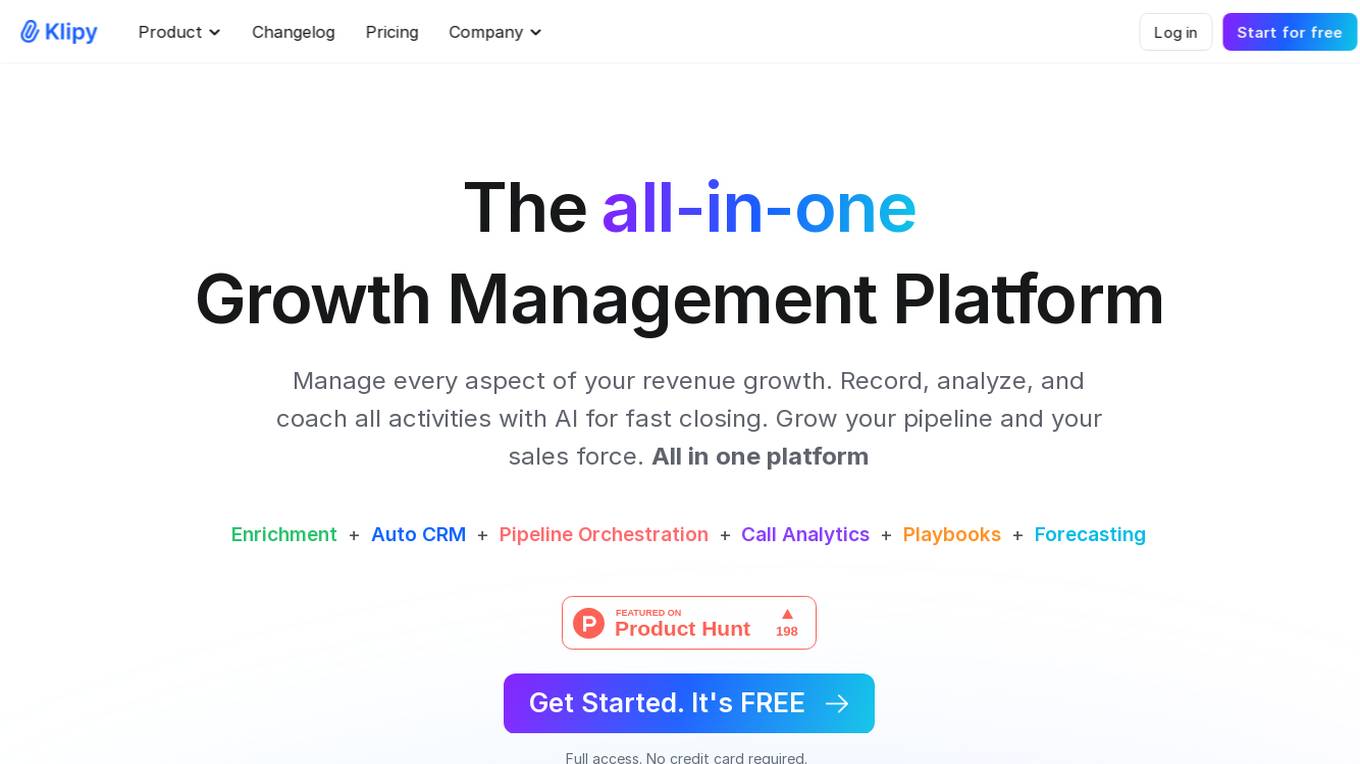
Klipy
Klipy is an AI-powered CRM platform that offers a comprehensive solution for managing all aspects of revenue growth. From automating manual tasks to providing insights through AI analytics, Klipy helps businesses streamline their sales processes and enhance customer relationships. The platform is designed to enrich, log, and organize deal flows, while also offering features like call analytics, playbooks, and pipeline orchestration. Klipy is trusted by various companies and is known for its security measures, ensuring data protection through encryption and anonymization. With a focus on growth operations management, Klipy aims to simplify the sales enablement process and improve customer loyalty.
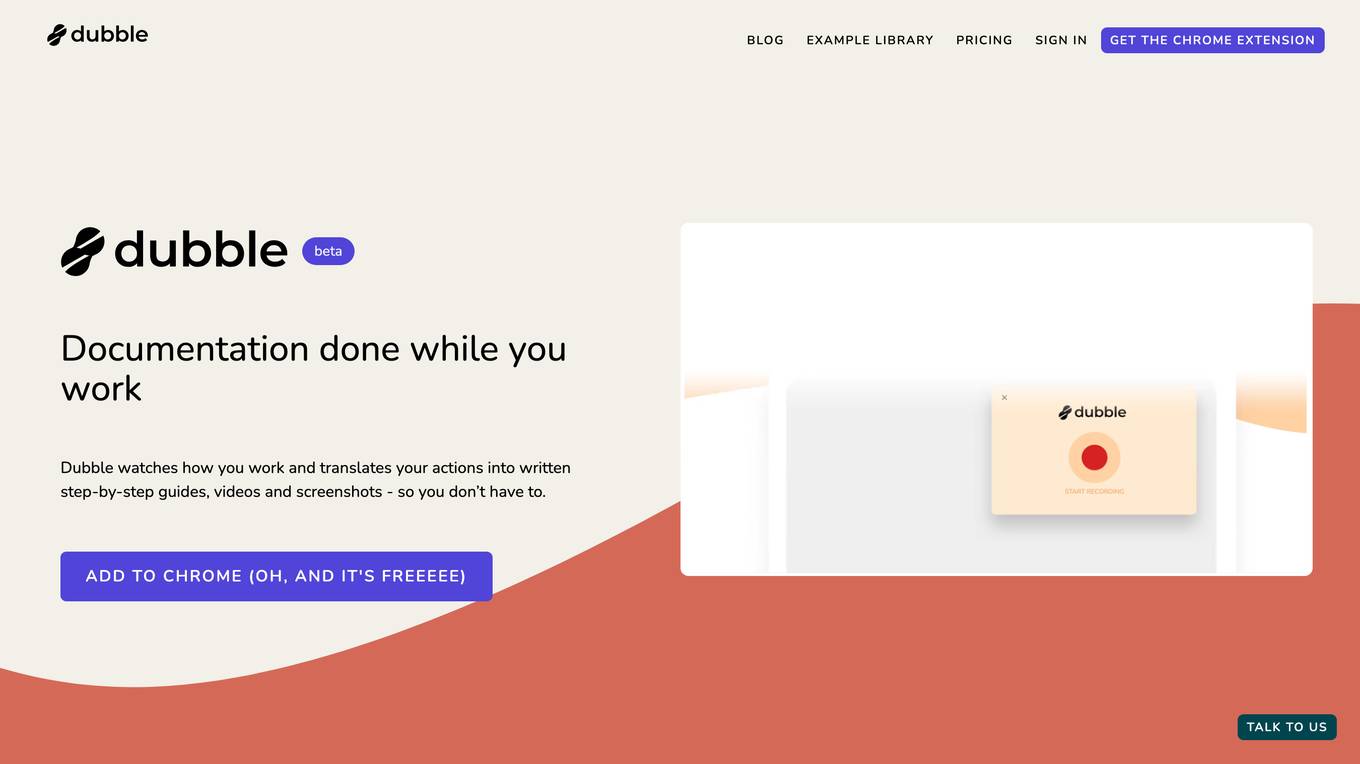
Dubble
Dubble is a free tool that helps you create step-by-step guides, tutorials, and onboarding resources for your processes. It uses AI to watch how you work and translate your actions into written instructions and screenshots. This makes it easy to document your processes without having to write anything yourself.

PMcardio
PMcardio is an AI-powered platform that offers accurate and rapid diagnosis of cardiovascular diseases through ECG interpretation. It provides healthcare professionals with the ability to diagnose various cardiac conditions within seconds, ensuring timely referrals and streamlined workflows. PMcardio leverages AI technology to digitize ECG records, enhance clinical decision-making, and standardize ECG reports, ultimately improving the quality of patient care. The platform is designed to cater to both organizations and individuals, offering a range of features and benefits to revolutionize the field of cardiology.
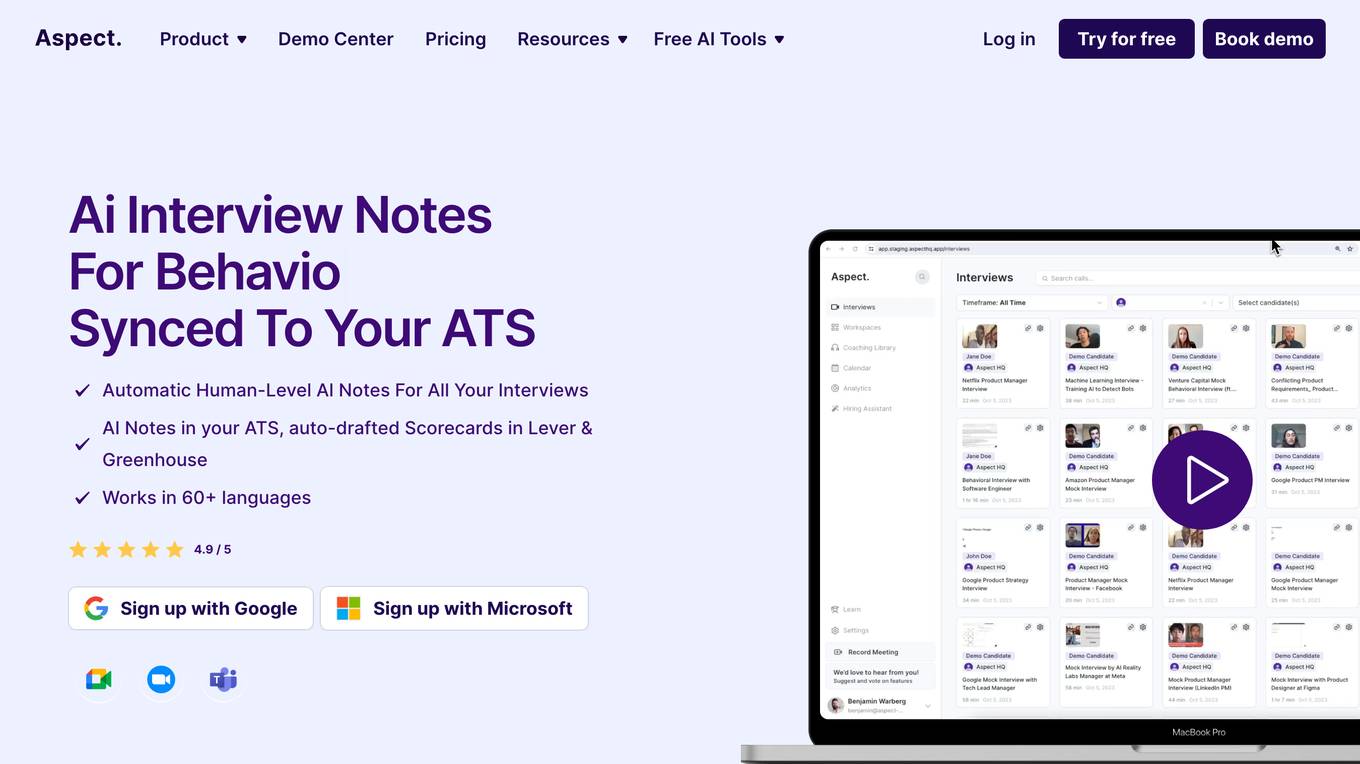
Aspect
Aspect is a human-level AI interview notes application designed for modern hiring teams. It records, transcribes, highlights, and summarizes interviews to help recruiters focus on candidates. The platform seamlessly integrates AI into interviews, ensuring important details are not missed. Aspect is perfect for recruiters and teams striving to enhance hiring with data-driven insights while standardizing interviews and reducing bias. It automates the sync of interview notes and summaries to the Applicant Tracking System (ATS), streamlining the hiring process and improving decision-making.
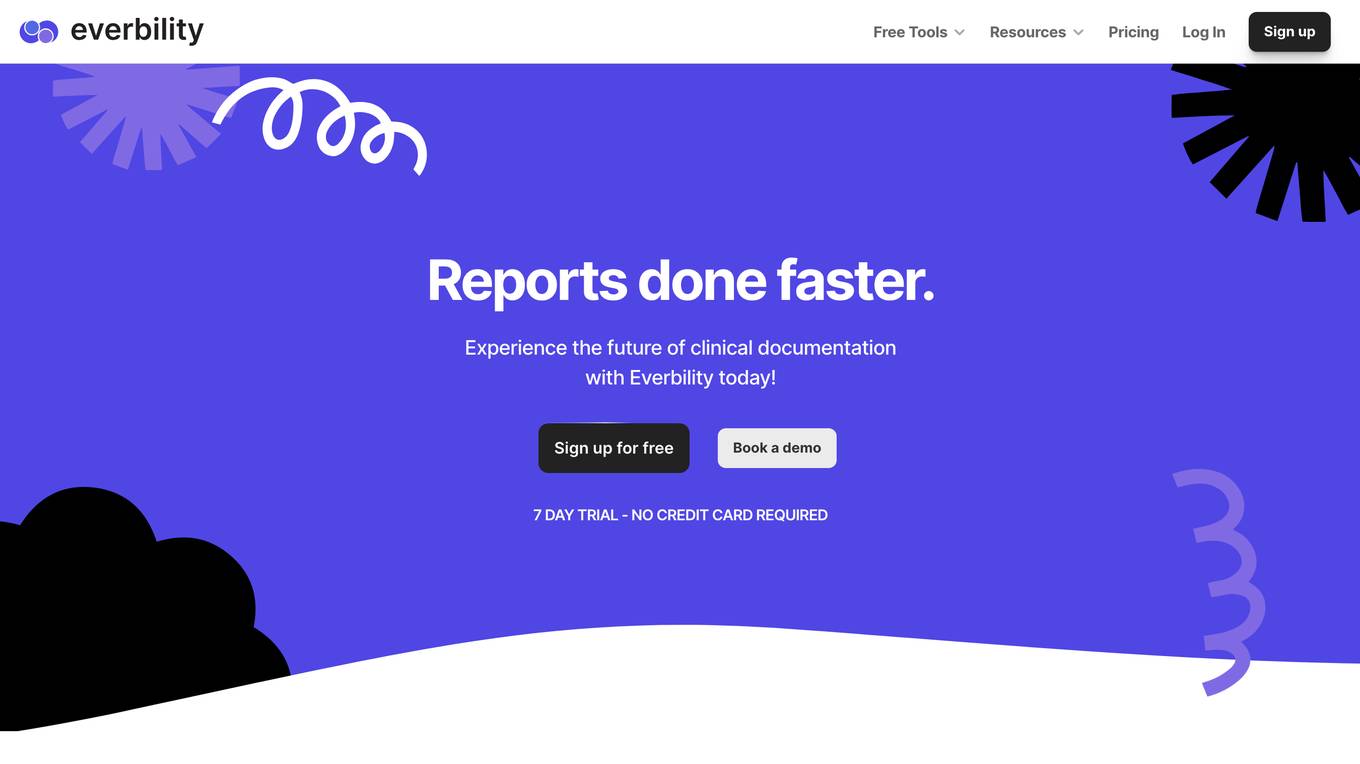
Everbility
Everbility is an AI-powered clinical documentation tool designed for Allied Health Professionals. It helps in writing reports, synthesizing client notes, brainstorming ideas, and focusing on client care. The tool saves time by generating progress notes, letters, and assessment reports, while ensuring data privacy and compliance with regulations like HIPAA and Australian Privacy Principles.
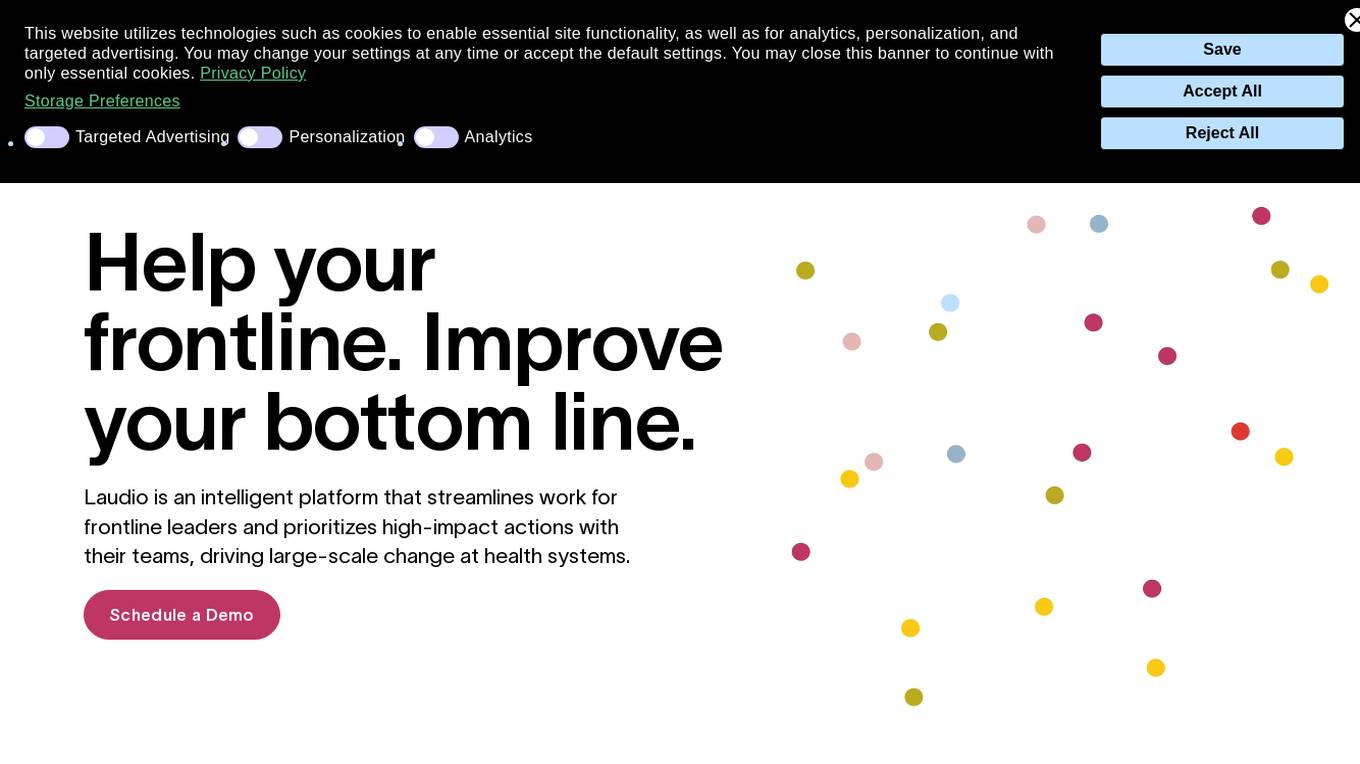
Laudio
Laudio is an intelligent platform designed to help frontline leaders in health systems streamline their work and prioritize high-impact actions with their teams. By integrating essential workflows and leveraging AI technology, Laudio aims to drive large-scale change by saving time, standardizing best practices, and improving employee engagement and patient experience.
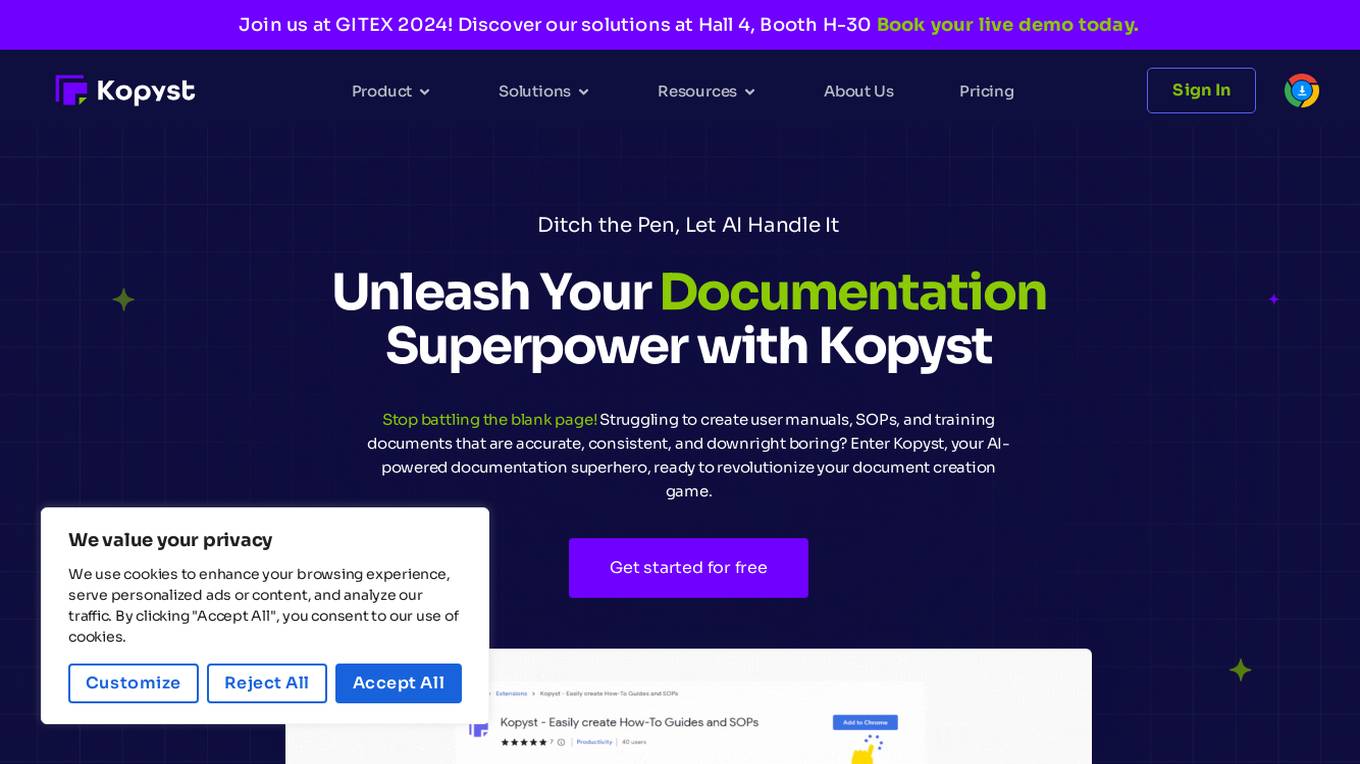
Kopyst
Kopyst is an AI-powered documentation tool that revolutionizes the process of creating engaging video and documents. It helps users streamline workflows, create user manuals, SOPs, and training documents with unmatched accuracy and efficiency. Kopyst offers features like instant documentation, versatile application for various document types, AI-powered intelligence, easy sharing and collaboration, and seamless integration with existing tools. The application empowers users to save time, reduce errors, optimize resources, and enhance productivity in documentation tasks.
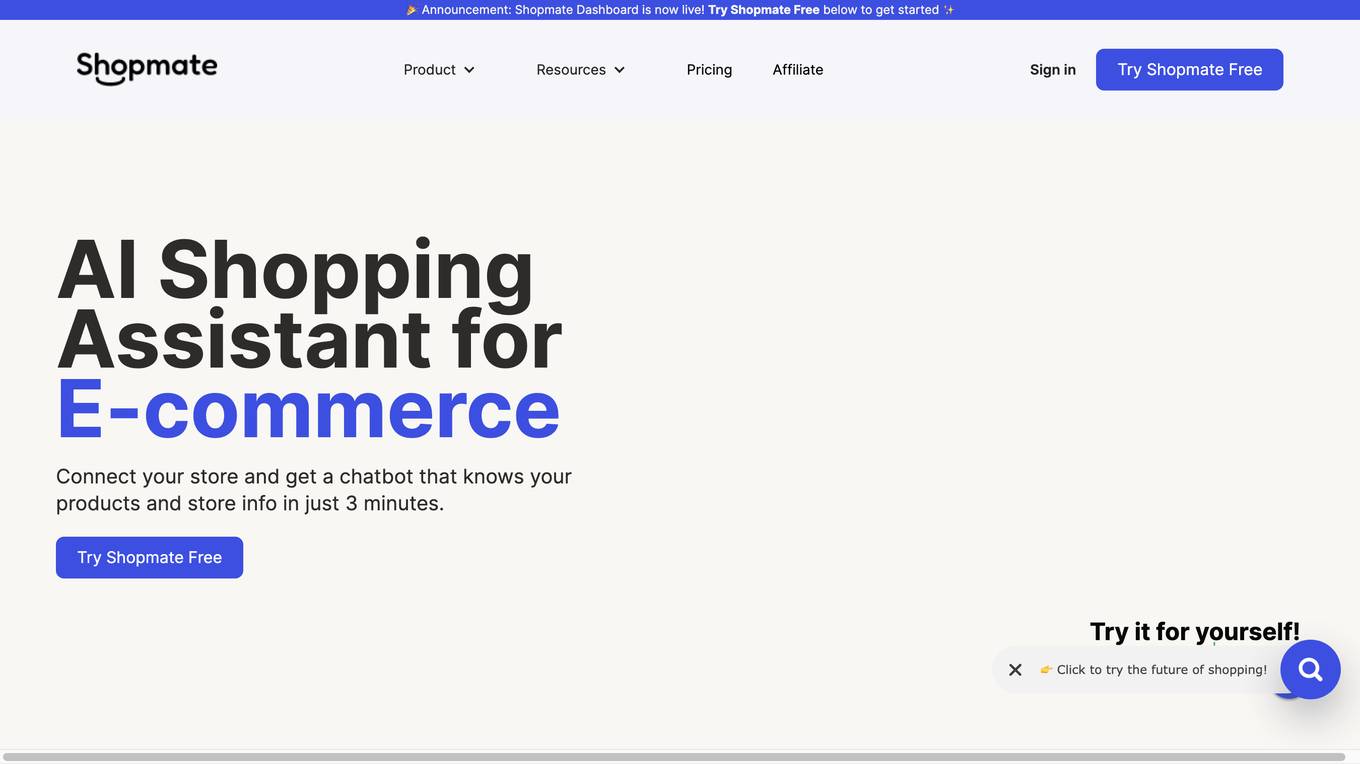
404 Error Page
The website is a simple error page indicating that the requested page is not found. It is a standard HTTP response code that informs the user that the server could not find the requested page. The 404 error page is a common occurrence on the internet when a user tries to access a page that no longer exists or has been moved.
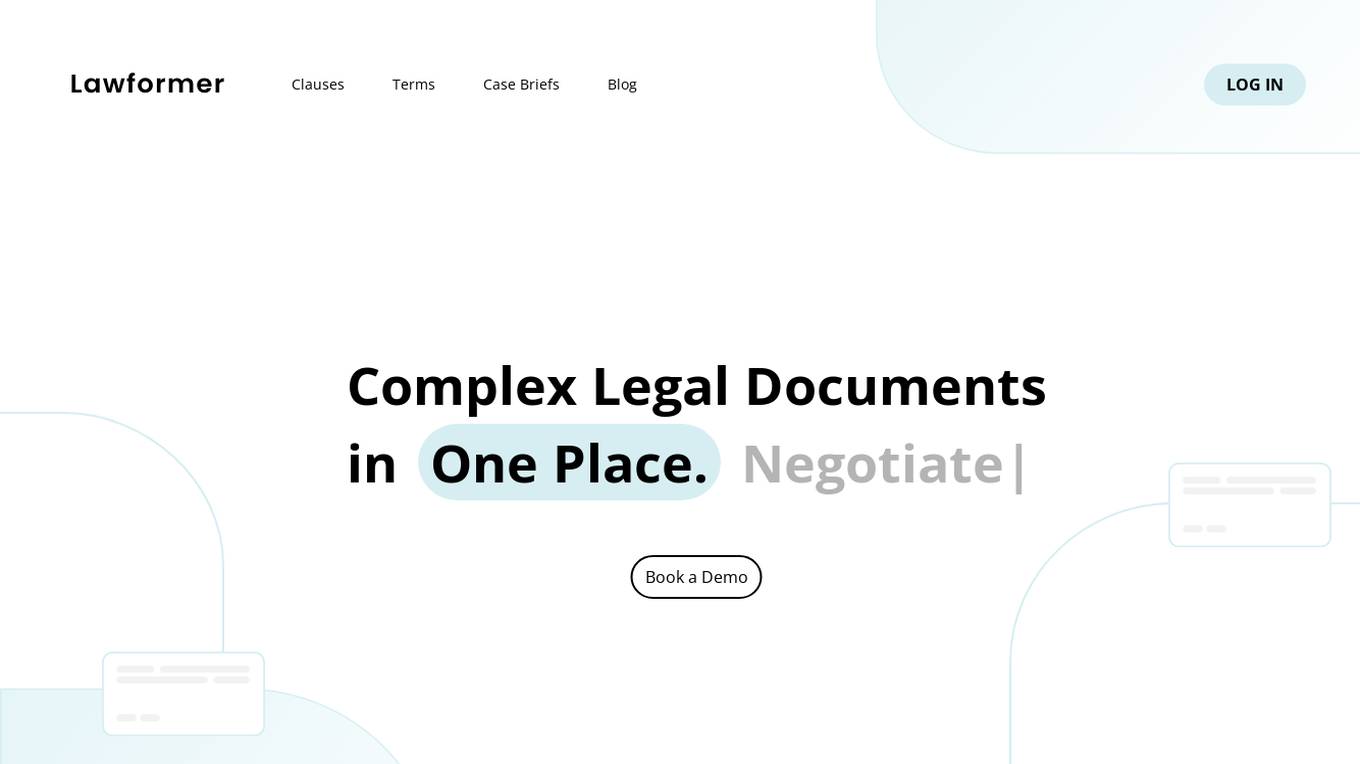
Lawformer
Lawformer is an AI-powered tool designed to simplify the process of handling complex legal documents. It offers an extensive database of attorney-drafted clauses and terms for any contract, along with a learning platform to enhance practical skills in contract drafting. Users can create a personalized library, manage contract knowledge efficiently, and find relevant contract clauses quickly. Lawformer has been serving Silicon Valley startups and the UK's entrepreneurial community since 2009 and 2015, respectively, and is recognized as an international platform for online payments. The platform is trusted by legal professionals and students alike for its comprehensive resources and user-friendly interface.
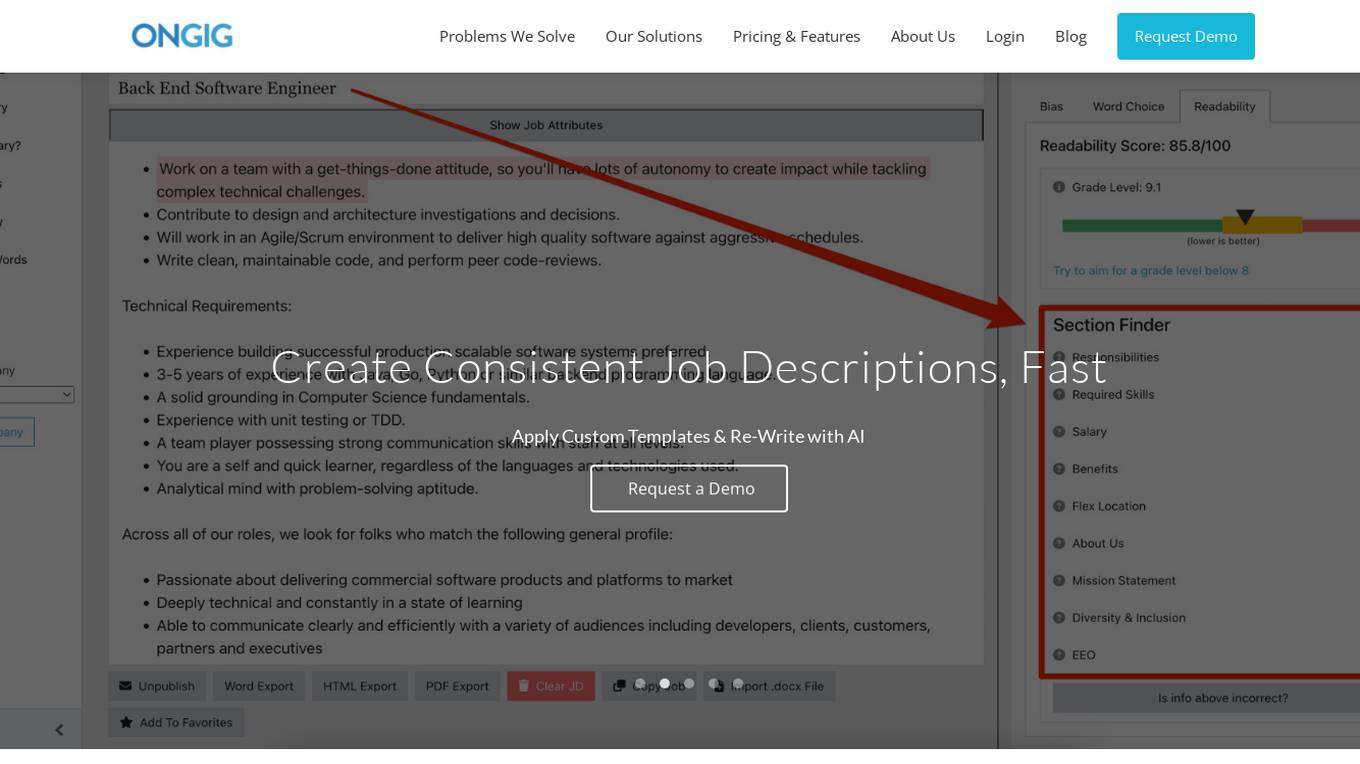
Ongig
Ongig is an AI-powered software that focuses on enhancing job postings for consistency, inclusivity, and efficiency. It offers solutions to common problems in job descriptions such as manual workflows, inconsistent postings, and bias. Ongig's features include a centralized job library, AI for talent acquisition, ATS integration, HRIS automation, and job description API. The application helps standardize job ads, improve readability, build a job library, remove gender-coded language, and provide API-driven insights for smarter hiring decisions.
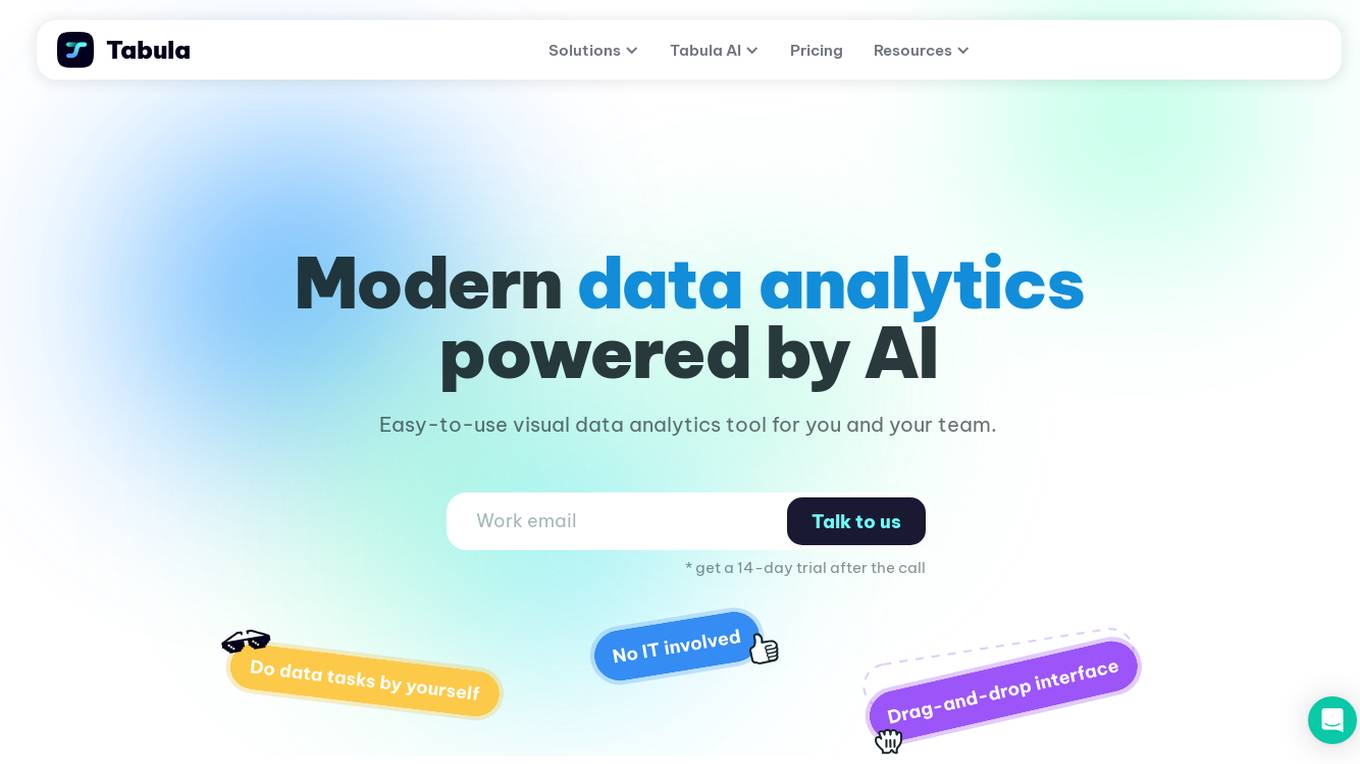
Tabula
Tabula is a visual data analytics tool that uses AI to help businesses get insights from their data. It is easy to use and can be used by anyone, regardless of their technical expertise. Tabula can be used to access and unify data from a variety of sources, standardize and blend datasets, add custom metrics, build stunning reports, and automate repetitive tasks. Tabula is integrated with a variety of data sources and platforms, making it easy to get started.

AudioShake
AudioShake is a cloud-based audio processing platform that uses artificial intelligence (AI) to separate audio into its component parts, such as vocals, music, and effects. This technology can be used for a variety of applications, including mixing and mastering, localization and captioning, interactive audio, and sync licensing.
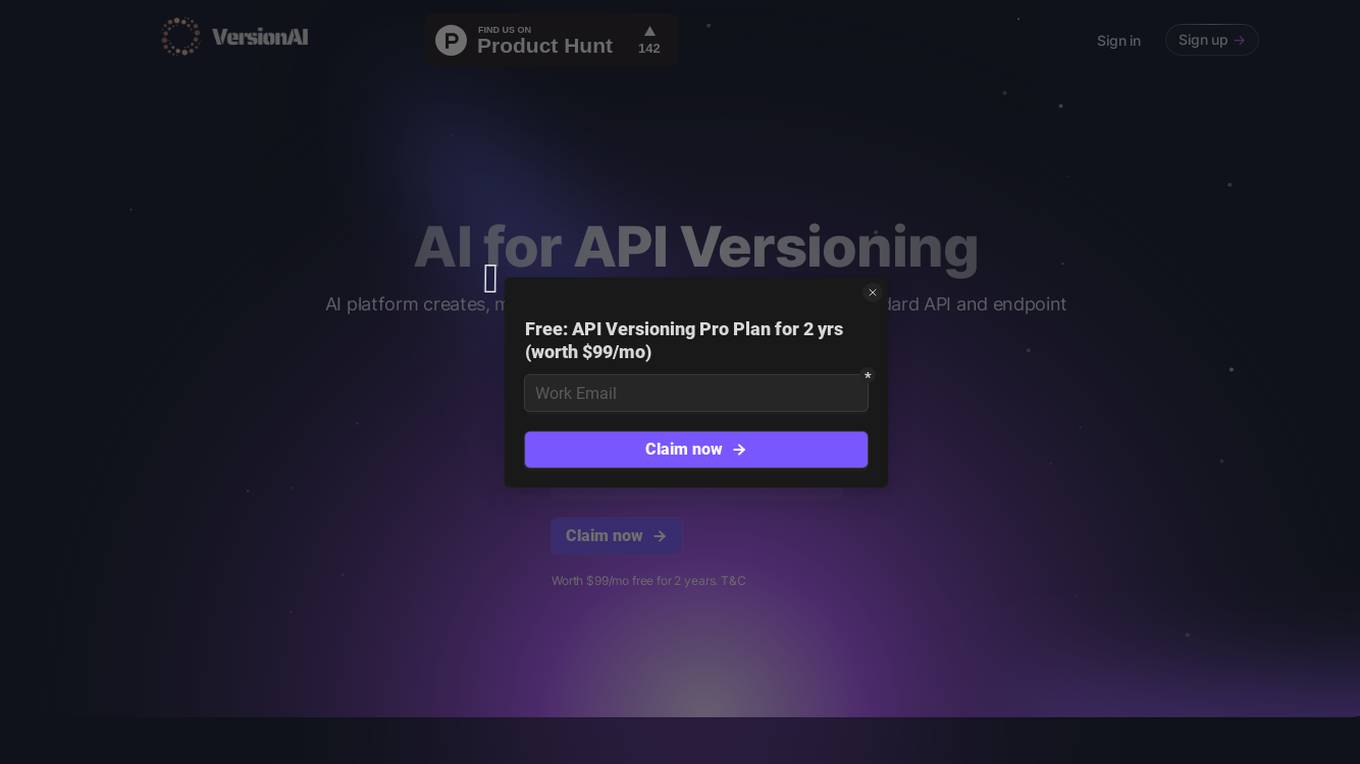
Apiversion.dev
Apiversion.dev is an AI-powered API versioning platform that helps developers manage and version their APIs. It provides a range of features to make API versioning easier, including automatic versioning, version deprecation, and version promotion. Apiversion.dev also integrates with popular CI/CD tools to automate the API versioning process.
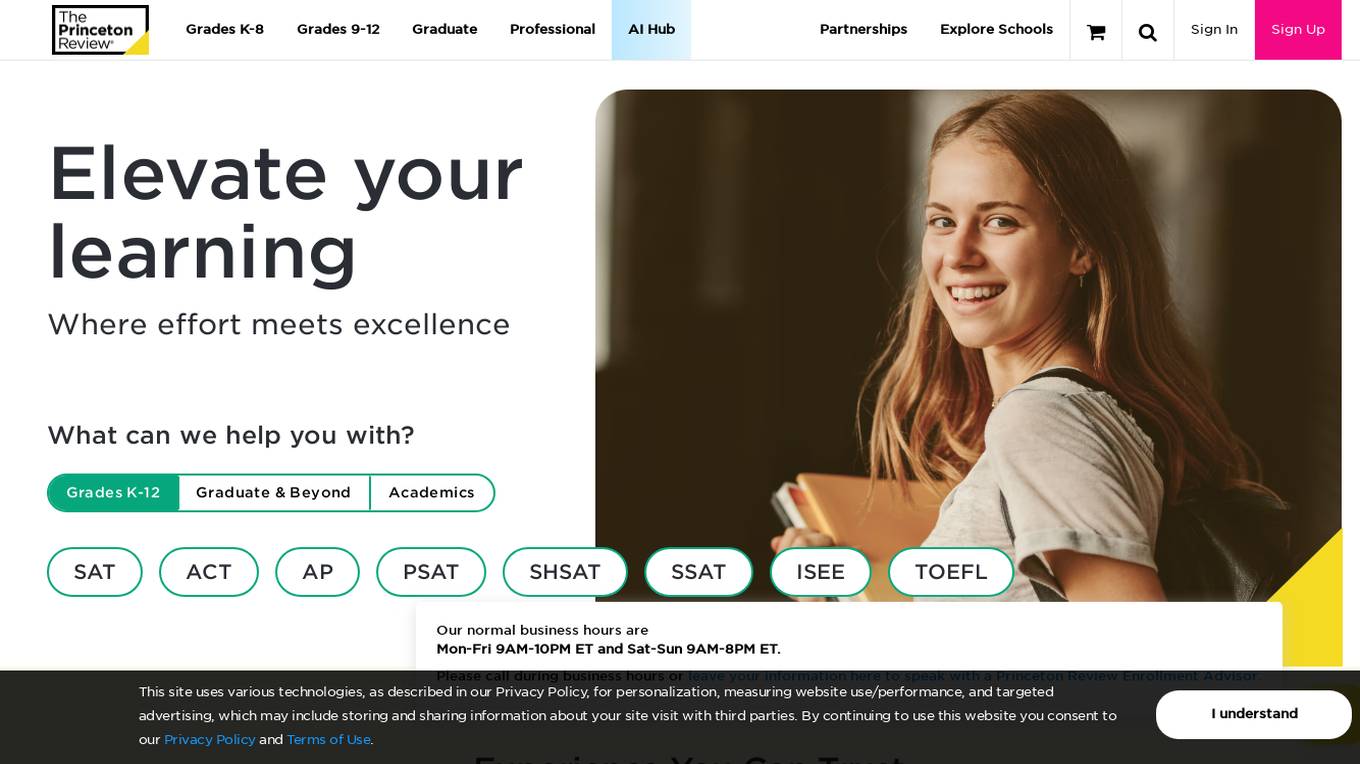
The Princeton Review
The Princeton Review is an AI-based test preparation and tutoring platform offering personalized academic support, test prep courses, and college admissions counseling. With over 43 years of industry experience and a track record of helping millions of students, The Princeton Review uses sophisticated AI technology to provide students with tailored learning experiences, expert-led videos, interactive reports, and feedback tools for essays and homework. The platform covers a wide range of subjects and exams, from K-12 academics to graduate and professional tests like SAT, ACT, MCAT, LSAT, GRE, GMAT, and more. Additionally, it offers services for college admissions counseling, school partnerships, and international licensing.
20 - Open Source AI Tools
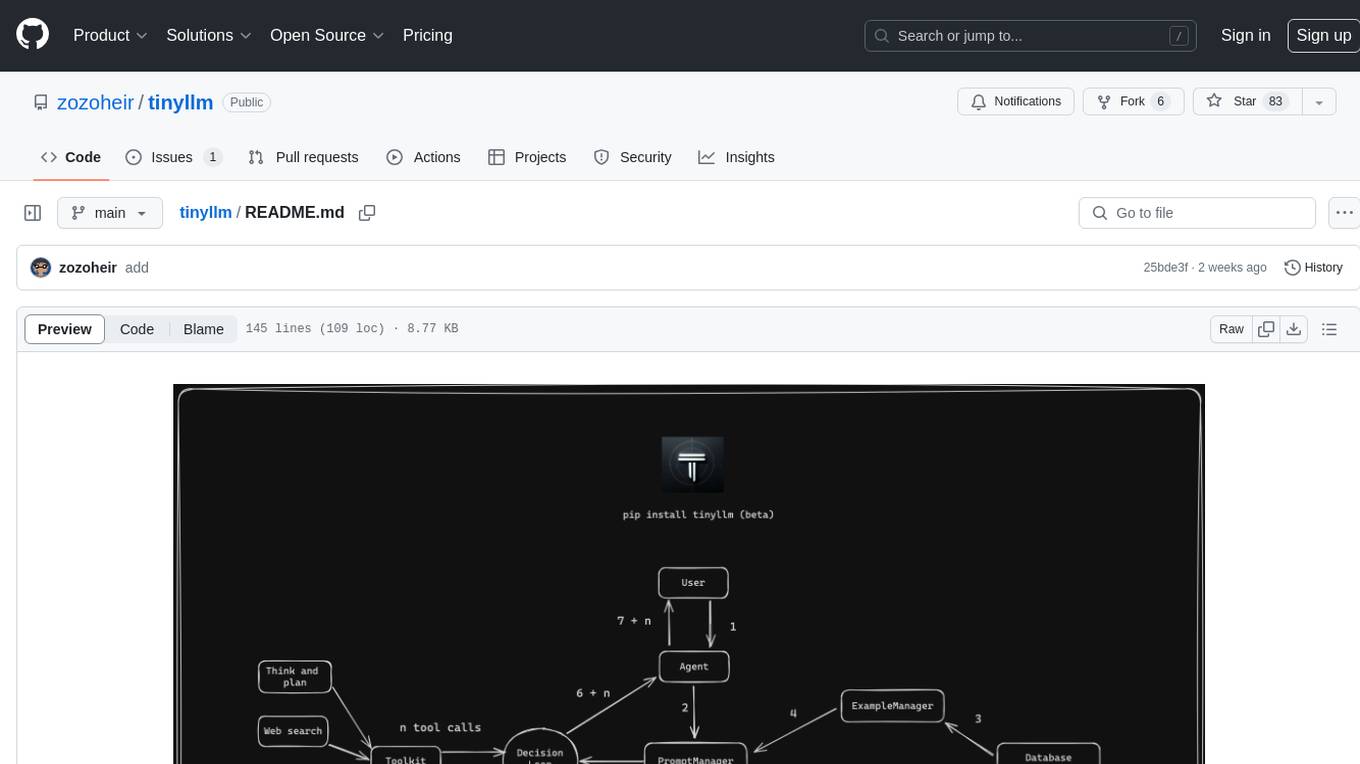
tinyllm
tinyllm is a lightweight framework designed for developing, debugging, and monitoring LLM and Agent powered applications at scale. It aims to simplify code while enabling users to create complex agents or LLM workflows in production. The core classes, Function and FunctionStream, standardize and control LLM, ToolStore, and relevant calls for scalable production use. It offers structured handling of function execution, including input/output validation, error handling, evaluation, and more, all while maintaining code readability. Users can create chains with prompts, LLM models, and evaluators in a single file without the need for extensive class definitions or spaghetti code. Additionally, tinyllm integrates with various libraries like Langfuse and provides tools for prompt engineering, observability, logging, and finite state machine design.
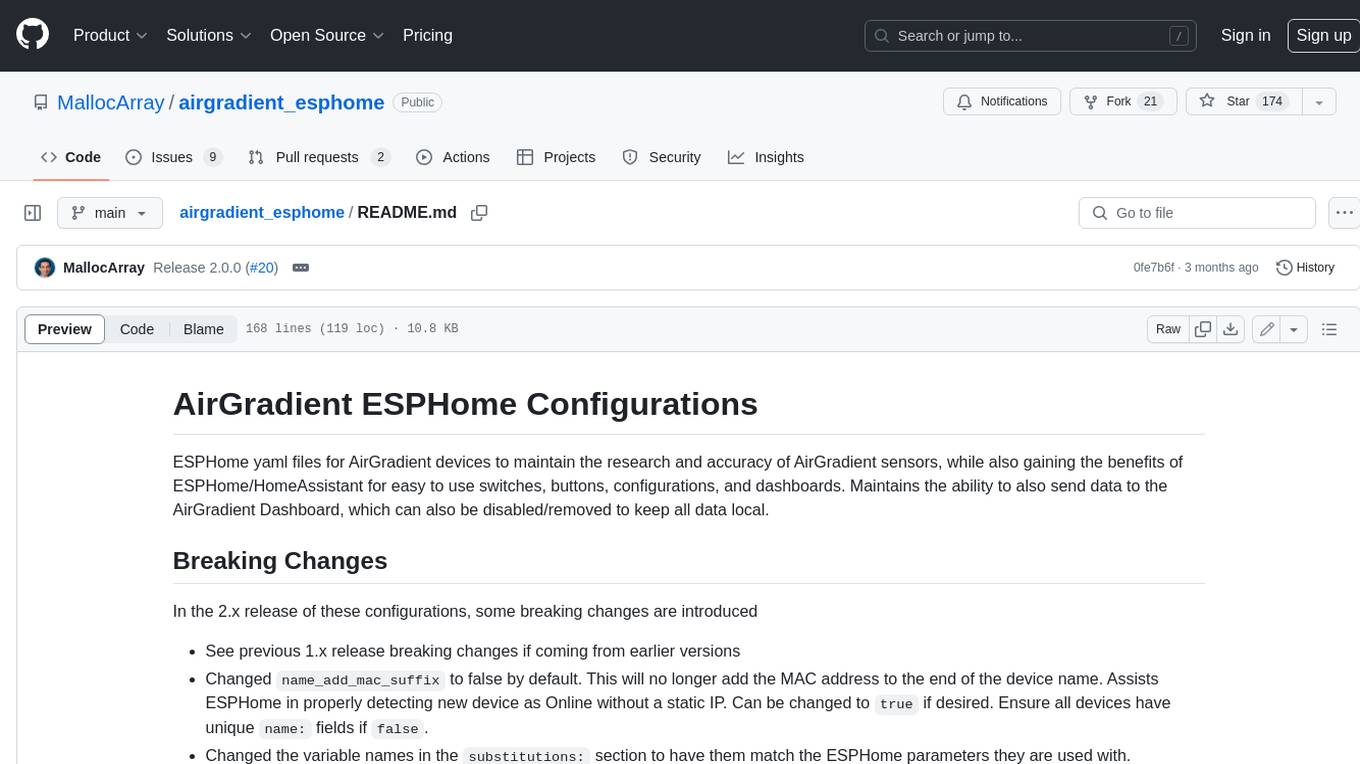
airgradient_esphome
ESPHome yaml files for AirGradient devices to maintain the research and accuracy of AirGradient sensors, while also gaining the benefits of ESPHome/HomeAssistant for easy to use switches, buttons, configurations, and dashboards. Maintains the ability to also send data to the AirGradient Dashboard, which can also be disabled/removed to keep all data local.

supervisely
Supervisely is a computer vision platform that provides a range of tools and services for developing and deploying computer vision solutions. It includes a data labeling platform, a model training platform, and a marketplace for computer vision apps. Supervisely is used by a variety of organizations, including Fortune 500 companies, research institutions, and government agencies.
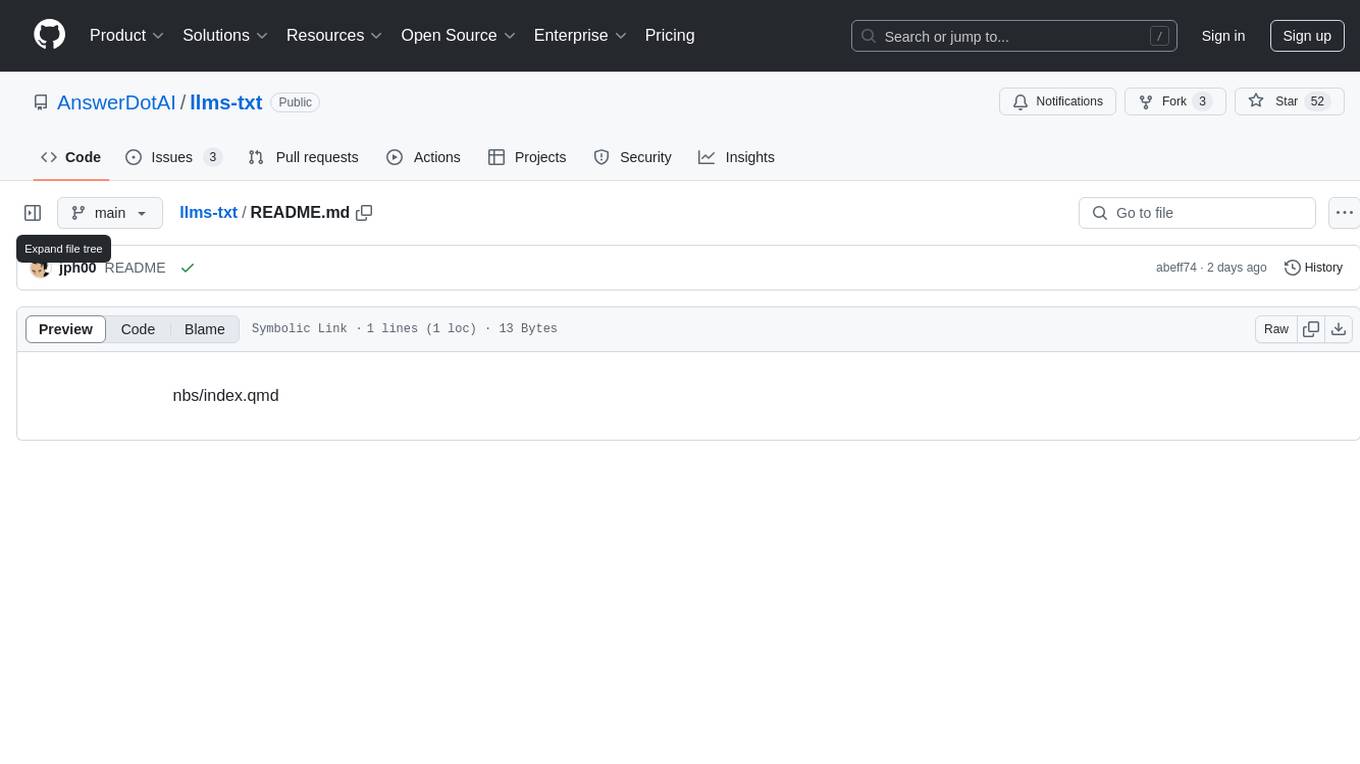
llms-txt
The llms-txt repository proposes a standardization on using an `/llms.txt` file to provide information to help large language models (LLMs) use a website at inference time. The `llms.txt` file is a markdown file that offers brief background information, guidance, and links to more detailed information in markdown files. It aims to provide concise and structured information for LLMs to access easily, helping users interact with websites via AI helpers. The repository also includes tools like a CLI and Python module for parsing `llms.txt` files and generating LLM context from them, along with a sample JavaScript implementation. The proposal suggests adding clean markdown versions of web pages alongside the original HTML pages to facilitate LLM readability and access to essential information.
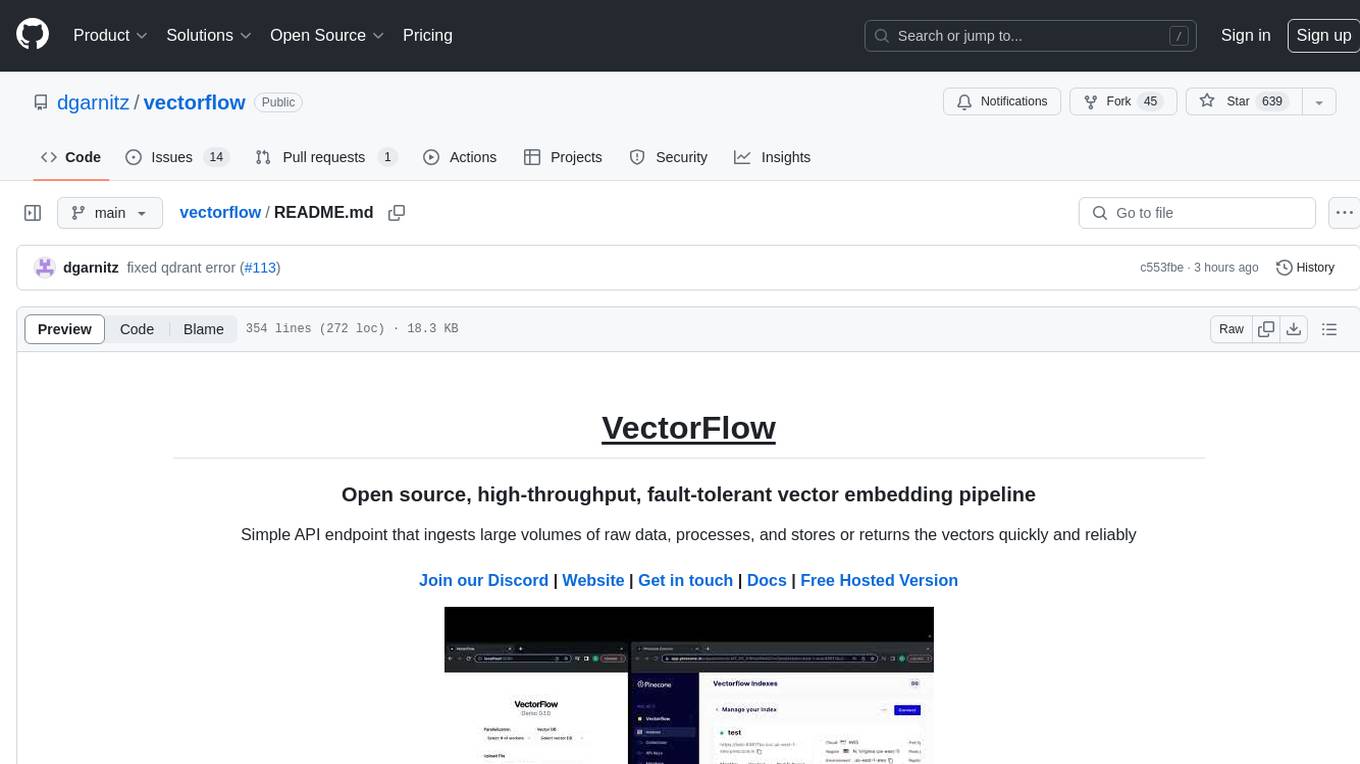
vectorflow
VectorFlow is an open source, high throughput, fault tolerant vector embedding pipeline. It provides a simple API endpoint for ingesting large volumes of raw data, processing, and storing or returning the vectors quickly and reliably. The tool supports text-based files like TXT, PDF, HTML, and DOCX, and can be run locally with Kubernetes in production. VectorFlow offers functionalities like embedding documents, running chunking schemas, custom chunking, and integrating with vector databases like Pinecone, Qdrant, and Weaviate. It enforces a standardized schema for uploading data to a vector store and supports features like raw embeddings webhook, chunk validation webhook, S3 endpoint, and telemetry. The tool can be used with the Python client and provides detailed instructions for running and testing the functionalities.
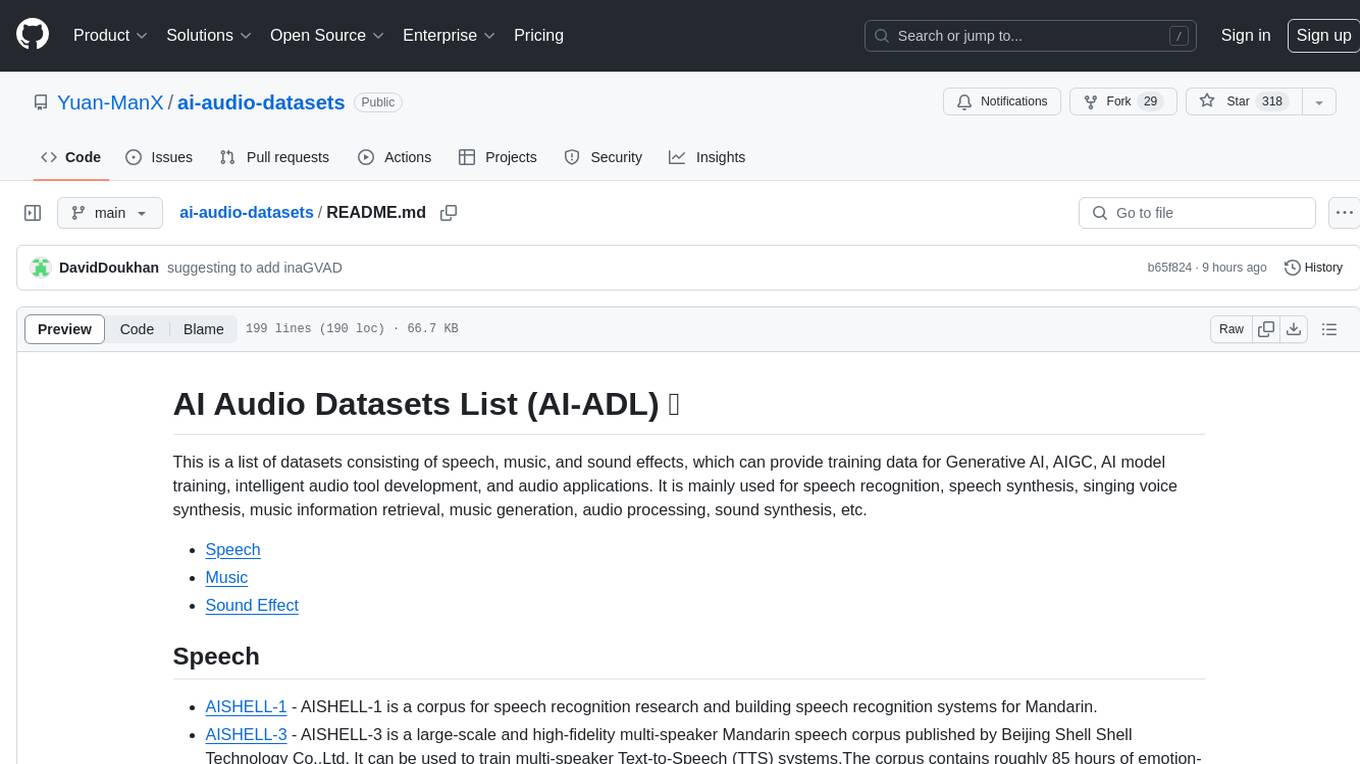
ai-audio-datasets
AI Audio Datasets List (AI-ADL) is a comprehensive collection of datasets consisting of speech, music, and sound effects, used for Generative AI, AIGC, AI model training, and audio applications. It includes datasets for speech recognition, speech synthesis, music information retrieval, music generation, audio processing, sound synthesis, and more. The repository provides a curated list of diverse datasets suitable for various AI audio tasks.

OpenAdapt
OpenAdapt is an open-source software adapter between Large Multimodal Models (LMMs) and traditional desktop and web Graphical User Interfaces (GUIs). It aims to automate repetitive GUI workflows by leveraging the power of LMMs. OpenAdapt records user input and screenshots, converts them into tokenized format, and generates synthetic input via transformer model completions. It also analyzes recordings to generate task trees and replay synthetic input to complete tasks. OpenAdapt is model agnostic and generates prompts automatically by learning from human demonstration, ensuring that agents are grounded in existing processes and mitigating hallucinations. It works with all types of desktop GUIs, including virtualized and web, and is open source under the MIT license.
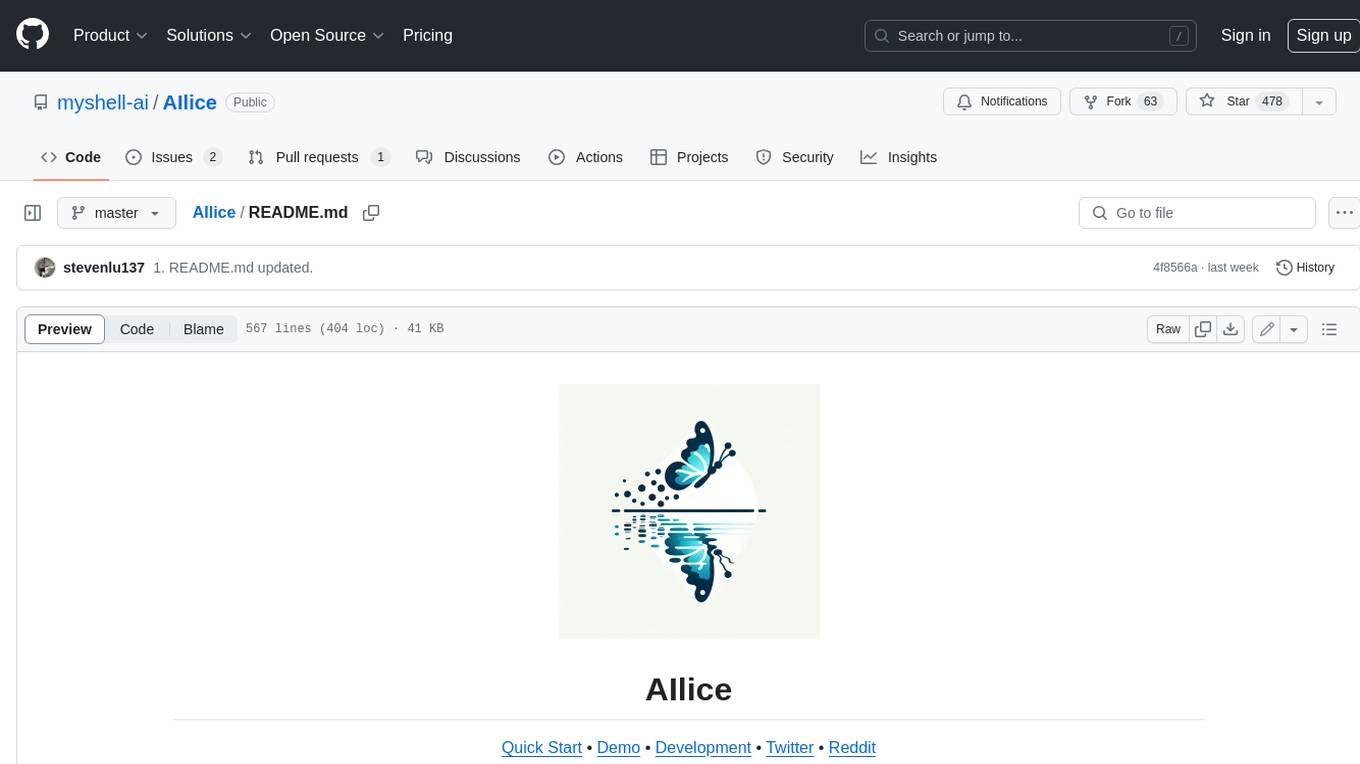
AIlice
AIlice is a fully autonomous, general-purpose AI agent that aims to create a standalone artificial intelligence assistant, similar to JARVIS, based on the open-source LLM. AIlice achieves this goal by building a "text computer" that uses a Large Language Model (LLM) as its core processor. Currently, AIlice demonstrates proficiency in a range of tasks, including thematic research, coding, system management, literature reviews, and complex hybrid tasks that go beyond these basic capabilities. AIlice has reached near-perfect performance in everyday tasks using GPT-4 and is making strides towards practical application with the latest open-source models. We will ultimately achieve self-evolution of AI agents. That is, AI agents will autonomously build their own feature expansions and new types of agents, unleashing LLM's knowledge and reasoning capabilities into the real world seamlessly.

universal
The Universal Numbers Library is a header-only C++ template library designed for universal number arithmetic, offering alternatives to native integer and floating-point for mixed-precision algorithm development and optimization. It tailors arithmetic types to the application's precision and dynamic range, enabling improved application performance and energy efficiency. The library provides fast implementations of special IEEE-754 formats like quarter precision, half-precision, and quad precision, as well as vendor-specific extensions. It supports static and elastic integers, decimals, fixed-points, rationals, linear floats, tapered floats, logarithmic, interval, and adaptive-precision integers, rationals, and floats. The library is suitable for AI, DSP, HPC, and HFT algorithms.

llms-tools
The 'llms-tools' repository is a comprehensive collection of AI tools, open-source projects, and research related to Large Language Models (LLMs) and Chatbots. It covers a wide range of topics such as AI in various domains, open-source models, chats & assistants, visual language models, evaluation tools, libraries, devices, income models, text-to-image, computer vision, audio & speech, code & math, games, robotics, typography, bio & med, military, climate, finance, and presentation. The repository provides valuable resources for researchers, developers, and enthusiasts interested in exploring the capabilities of LLMs and related technologies.
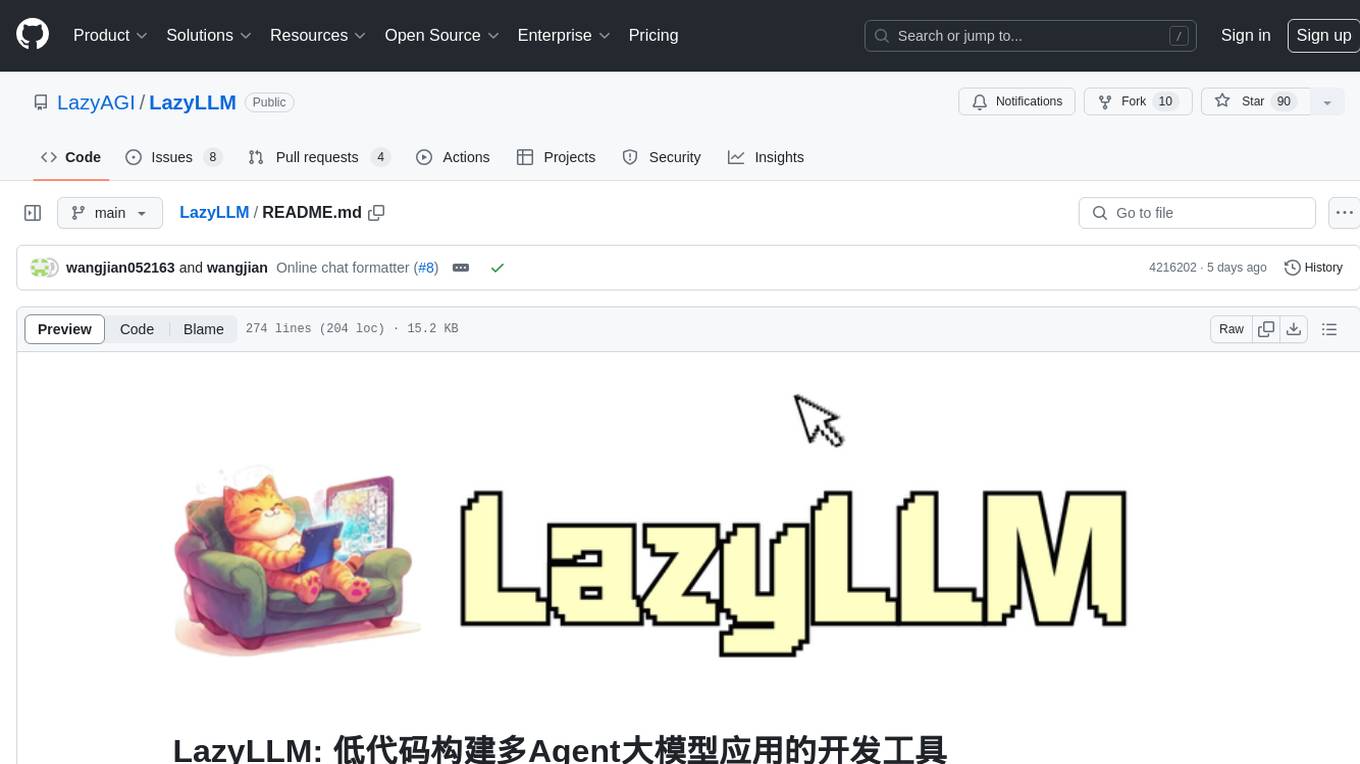
LazyLLM
LazyLLM is a low-code development tool for building complex AI applications with multiple agents. It assists developers in building AI applications at a low cost and continuously optimizing their performance. The tool provides a convenient workflow for application development and offers standard processes and tools for various stages of application development. Users can quickly prototype applications with LazyLLM, analyze bad cases with scenario task data, and iteratively optimize key components to enhance the overall application performance. LazyLLM aims to simplify the AI application development process and provide flexibility for both beginners and experts to create high-quality applications.
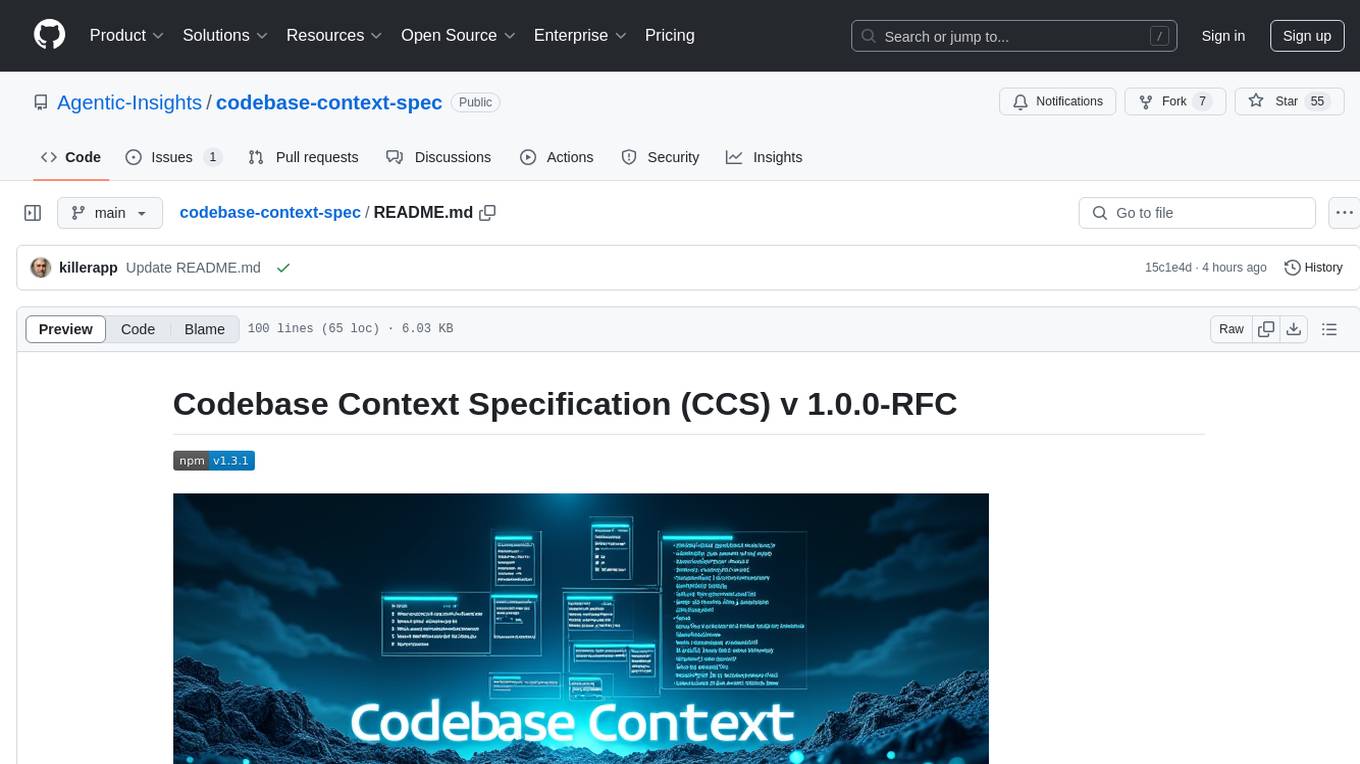
codebase-context-spec
The Codebase Context Specification (CCS) project aims to standardize embedding contextual information within codebases to enhance understanding for both AI and human developers. It introduces a convention similar to `.env` and `.editorconfig` files but focused on documenting code for both AI and humans. By providing structured contextual metadata, collaborative documentation guidelines, and standardized context files, developers can improve code comprehension, collaboration, and development efficiency. The project includes a linter for validating context files and provides guidelines for using the specification with AI assistants. Tooling recommendations suggest creating memory systems, IDE plugins, AI model integrations, and agents for context creation and utilization. Future directions include integration with existing documentation systems, dynamic context generation, and support for explicit context overriding.
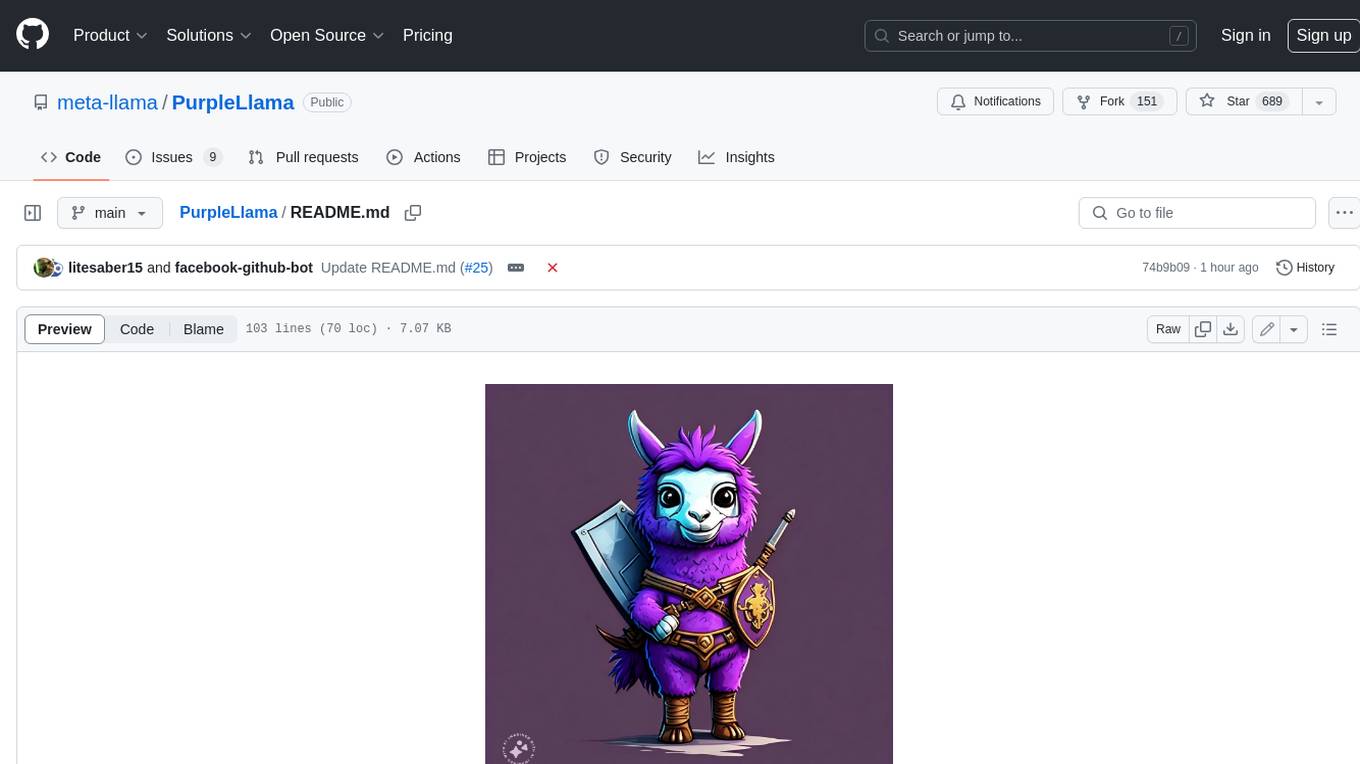
PurpleLlama
Purple Llama is an umbrella project that aims to provide tools and evaluations to support responsible development and usage of generative AI models. It encompasses components for cybersecurity and input/output safeguards, with plans to expand in the future. The project emphasizes a collaborative approach, borrowing the concept of purple teaming from cybersecurity, to address potential risks and challenges posed by generative AI. Components within Purple Llama are licensed permissively to foster community collaboration and standardize the development of trust and safety tools for generative AI.
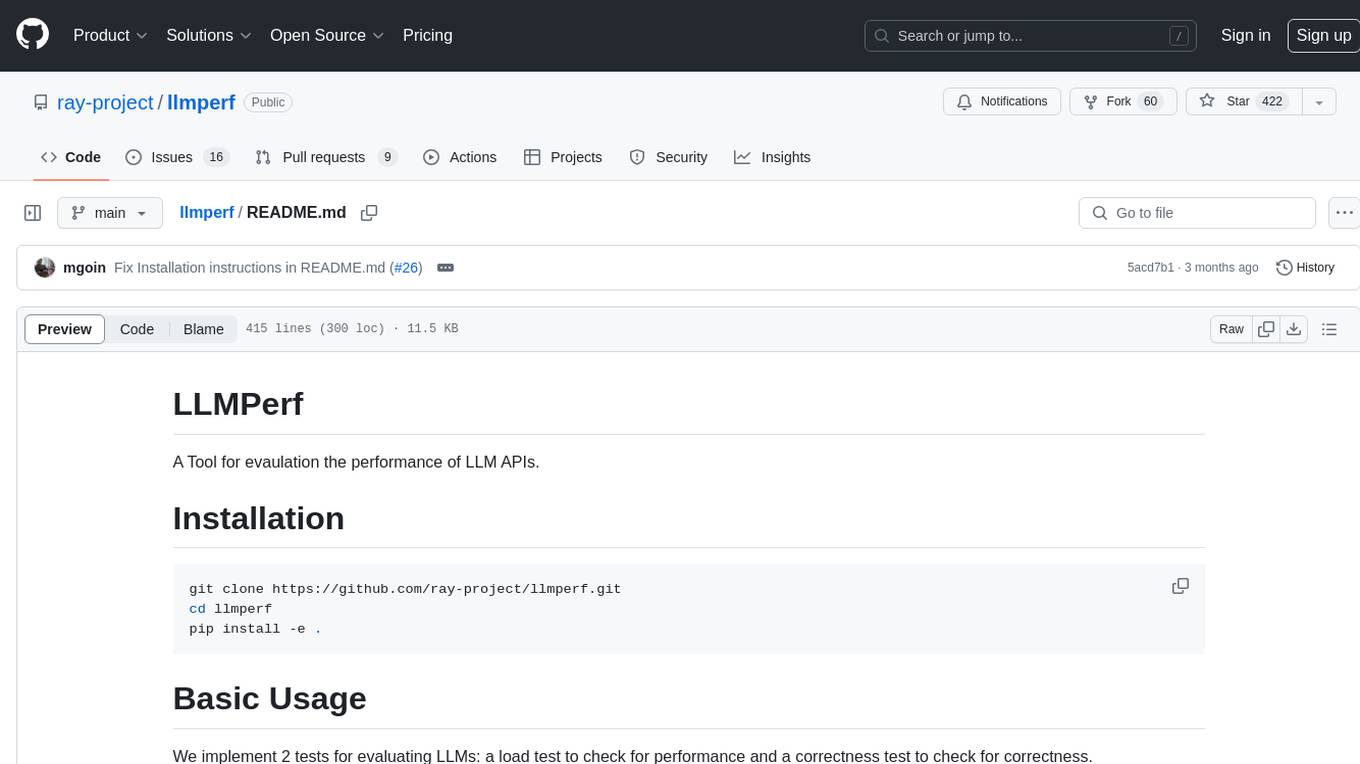
llmperf
LLMPerf is a tool designed for evaluating the performance of Language Model APIs. It provides functionalities for conducting load tests to measure inter-token latency and generation throughput, as well as correctness tests to verify the responses. The tool supports various LLM APIs including OpenAI, Anthropic, TogetherAI, Hugging Face, LiteLLM, Vertex AI, and SageMaker. Users can set different parameters for the tests and analyze the results to assess the performance of the LLM APIs. LLMPerf aims to standardize prompts across different APIs and provide consistent evaluation metrics for comparison.
3 - OpenAI Gpts
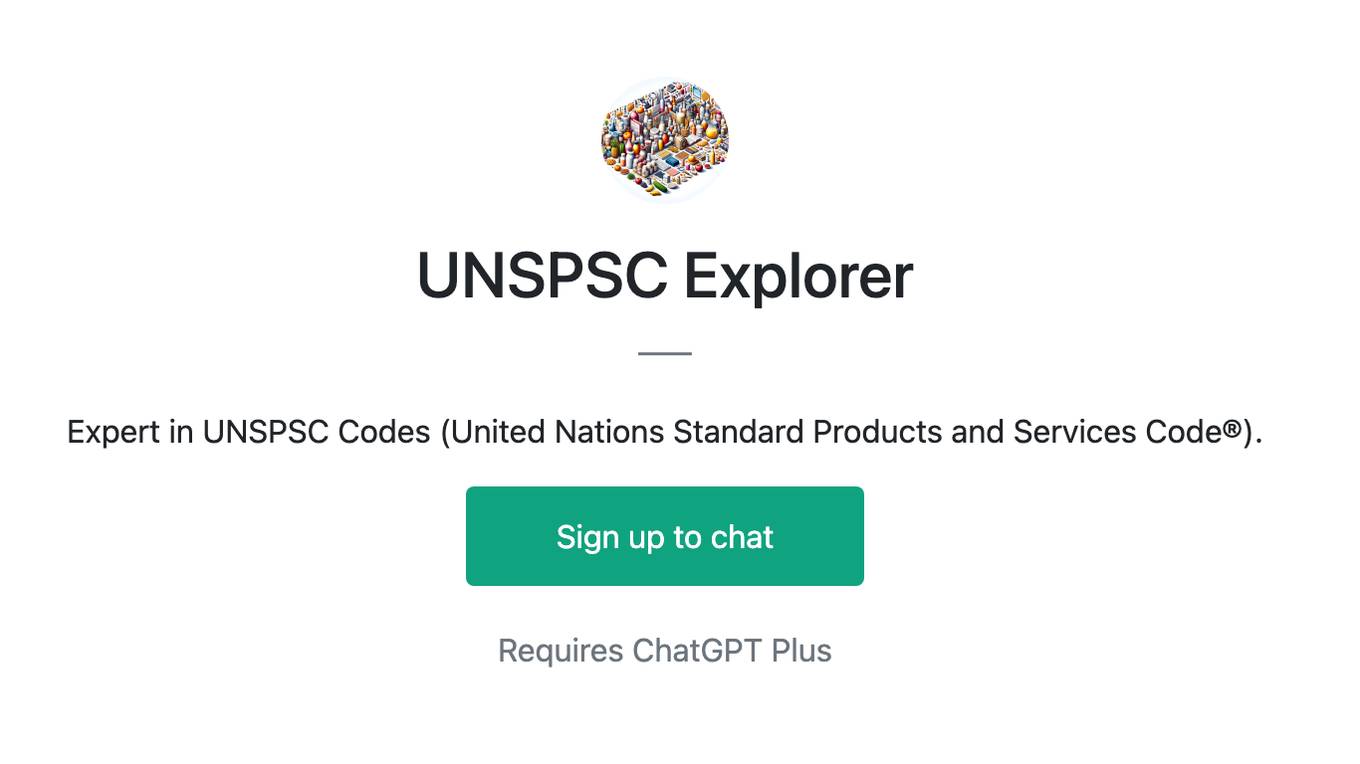
UNSPSC Explorer
Expert in UNSPSC Codes (United Nations Standard Products and Services Code®).

Standardized EV Charging Site Evaluator
Delivers consistent, tailored EV charging site scores.
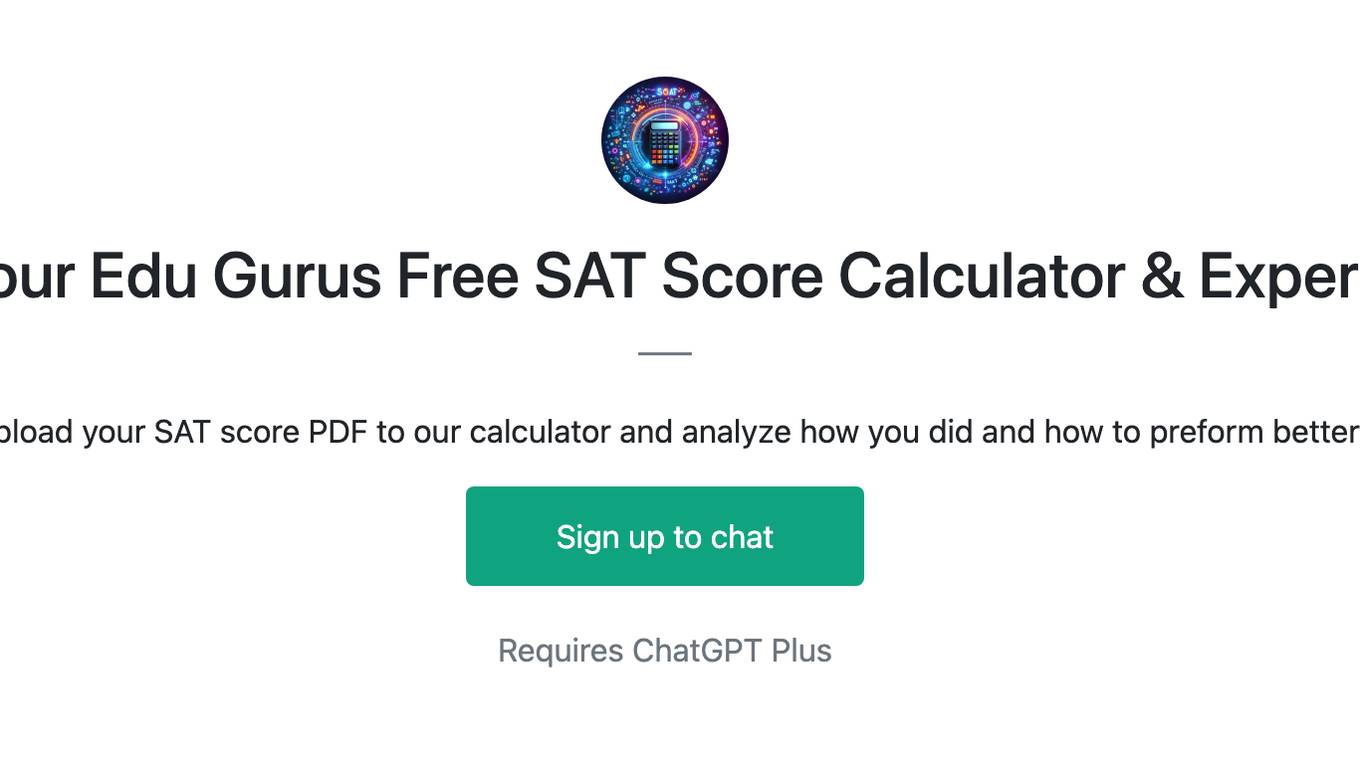
Your Edu Gurus Free SAT Score Calculator & Expert
Upload your SAT score PDF to our calculator and analyze how you did and how to preform better
